#jujutsu kaisen theory
Text
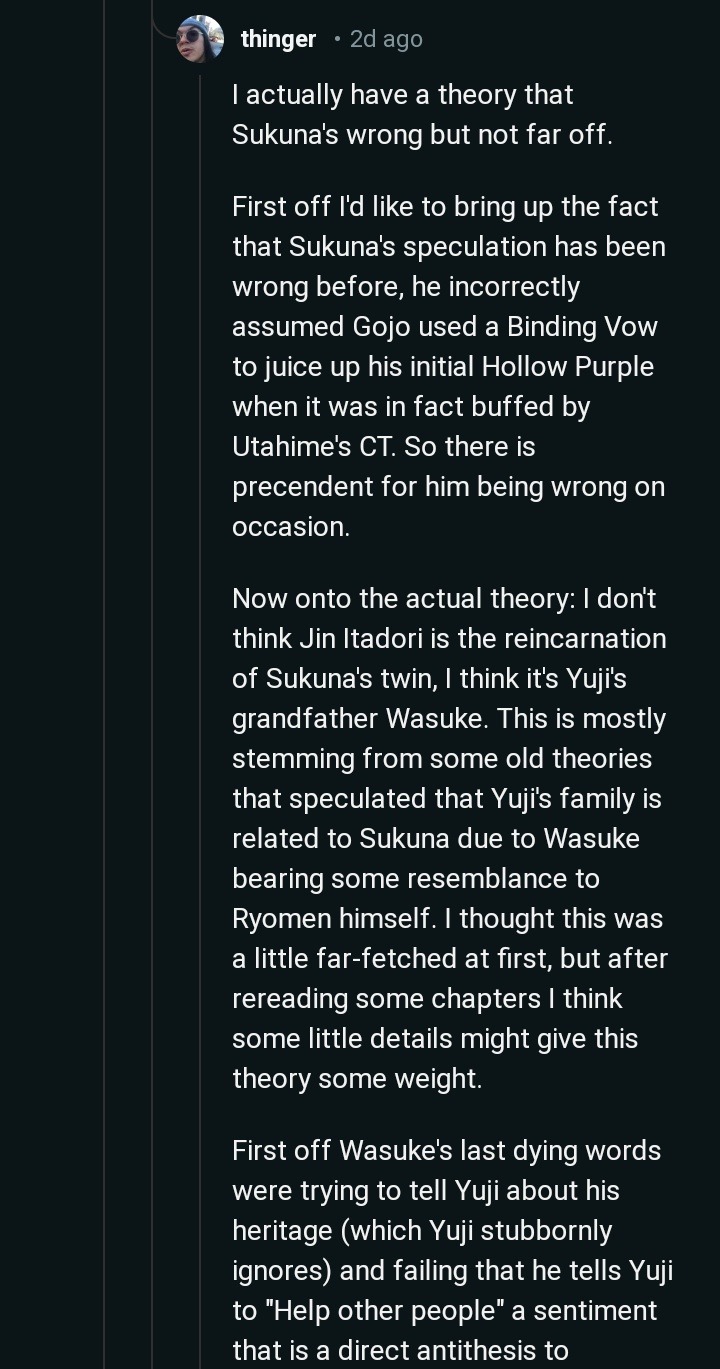
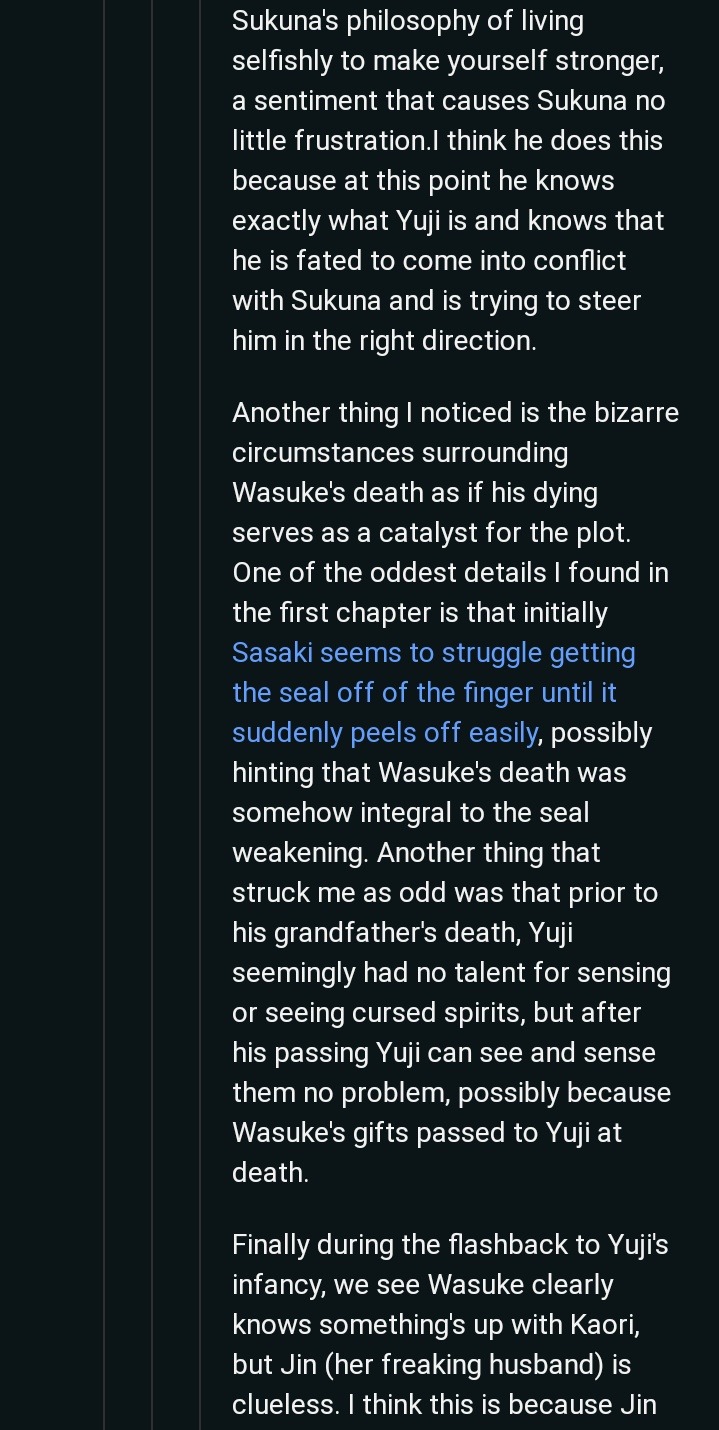
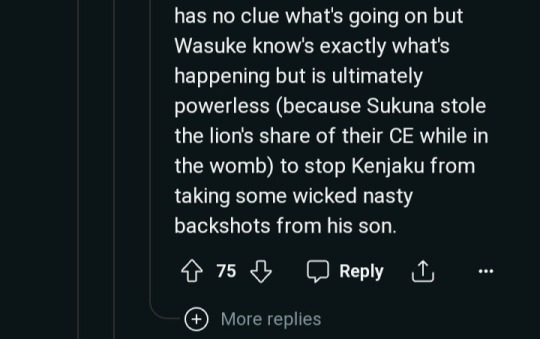
some foods for thoughts, ain't they?
40 notes
·
View notes
Text

Are You Satisfied?
As you might have heard chapter 236 of Jujutsu Kaisen ends with the death of Gojo Satoru. The fandom is making a pretty big deal about it. As someone who predicted from the beginning that Gojo was going to lose against Sukuna, the reaction is fascinating to me. This is perhaps the most controversial chapter of Jujutsu Kaisen I've ever seen. So I've decided to throw my hat into the ring.
The central theme of Jujutsu Kaisen is death, so the death of one of the main characters isn't too surprising, but what does Gojo's death mean for the story? What does it say about his character?
As I said above I am a little bit shocked by the extreme controversy over Gojo's death. Gojo was never going to win the fight in the first place, because Jujutsu Kaisen is a story and the story would be over if he defeated Sukuna. He'd easily be able to take care of Kenjaku afterwards and the main conflcit would be resolved. Would it really be an interesting story if Gojo one shotted the villains while the kids just wathced on Television?
The story is also not about Gojo, it's about the students. Gojo may think he's the protagonist of reality but he's not the protagonist of the story.
Once again, Jujutsu Kaisen is a story and stories have themes. We may grow personally attached to characters, but characters are just narrative tools to convey the themes of a story, no different from prose, dialogue, and art. Characters are a tool to be used well or used poorly, and sometimes yes that means killing them. Whether Gojo's death was naratively satisfying though isn't the purpose of this post though we're only asking what does it mean?
Finally, Jujutsu Kaisen is not only a fictional story, it's specifically a tragedy. Full disclosure, it's a manga about death.
The Protagonist of a Tragedy
So, number one shout out to me for making this post 4 months ago where I called the way Gojo would end the fight.


Excuse me while I fist pump for calling it!
The question on everyone's minds is why does one of the most powerful characters in the manga die offscreen in a pretty humiliating way, cut in half and helpless on the ground just like Kaneki. The reason Gojo didn't get a more heroic (or cooler) death is because we're not reading My Hero Academia, this is not a story about heroes or even a typical Shonen manga it is a tragedy.
In poetics Aristotle defines tragedy as:
"an imitation of an action that is serious, complete, and of a certain magnitude; in language embellished with each kind of artistic ornament, the several kinds being found in separate parts of the play; in the form of action, not of narrative; through pity and fear effecting the proper purgation of these emotions" (51).
To paraphrase a tragedy is about human action, actions characters make in a tragedy often have dire consequences. One of the most common consequences if the reversal of a hero's fortune, a hero of a tragedy usually starts out on top and ends up on the bottom because of the bad choices they make. If in normal shonen manga characters overcome their flaws through effort and persistence, in Jujutsu Kaisen we see characters more often than not lose to their flaws.
The reason I posted that Kaneki panel specifically is because it was a brilliant moment of narrative punishment for Kaneki's central character flaw. Kaneki the hero's main flaw is that he always fights alone, and he constantly makes that same choice over and over again to fight alone. One of the characters helpfully explains it as well.

Stories are primarily about change. If a character doesn't change they're not serving the plot, unless that specifically is the point. People have pointed out how abrupt it is for Gojo to get sealed in Shibuya, get let out, and then immediately die afterwards but that's kind of the point. Gojo made more or less the exact same choice (he asked for Utahime's help for a buff but otherwise fought the entire battle himself). The definition of insanity and what not, why would doing the same thing over and over again net him a different result?

Not only did Gojo choose to fight alone, but as I've been hammering on and on about in previous meta the entire fight Gojo cared more about fighting a strong opponent then he did saving Megumi, the child he was responsible for.
Jujutsu Kaisen is not a typical shonen manga where everything is resolved by beating a strong villain in a fight. That's specifically why I used the Tokyo Ghoul reference, because the reason Kaneki is defeated offscreen like that is because he thought the world worked like a shonen manga. He has a fantasy sequence where he's fighting Juzo in a shonen battle tournament like this is Yu Yu Hakusho right before it snaps back to reality and he's limbless on the ground.
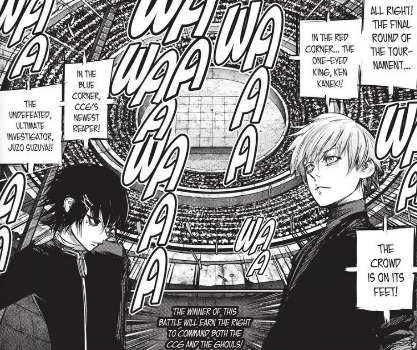
Gojo is a major character in the manga Jujutsu Kaisen, literally "Sorcery Fight" and he is the best sorcerer in the whole world. His entire identity revolves around being a sorcerer. Since he is so good and beloved at what he does, he thinks that everything is resolved by exorcising a curse or defeating a strong opponent. He has basically no identity outside of that. Which is why when he's fighting the possessed body of his student, a person he's been mentoring since childhood his priority is not to save Megumi but to beat a strong opponent. Gojo is a sorcerer, before a human being. That's who he is, that's who he always has been since day one.
I think part of the negative fan reaction comes from fans being really attached to this scene in the manga and deciding Gojo's entire character revolves around being a good mentor figure to children.

Which is just incorrect, Gojo's entire character revolves around being the strongest. On top of that though, Gojo can care about children and also care about being the strongest he can care about multiple things at once and have those things contradict each other because humans are complicated. I'd point out even in this panel where he's stating motivation he's not trying to raise these kids up into being healthy adults, he wants them to be strong Jujutsu Sorcerers. Even when he's raising kids, his intention is to turn them into Jujutsu Sorcerers because everything in Gojo's mind revolves around Jujutsu Sorcery. Gojo does not exist outside of the world of sorcerers. Gojo may be the chosen one but he'd never be able to hold down a job at Mcdonalds.
I think in general readers put more investment in the things characters say out loud, rather than their actions. You can say one thing and do another. I can say "I should never eat sweets again I'm going to improve my diet", and then go and eat ice cream five hours later. Gojo can state out loud his intention to foster children and protect their youths, but then fail to properly do that in the story. Characters are not always what they say they are, that's why they're interesting to interpret. This isn't me calling the readers stupid, just pointing out that Gojo is made up of contradictions. He wants to get rid of the old guard and replace them with something new, but Gojo IS THE OLD GUARD.
If the culling games arc has shown us one thing, it's that ancient sorcerers brought to the modern age do not care that much about human life on an individual level, they are all of them egoists. There's a reason Gojo resembles someone like Sukuna more than he does any other character in the manga. I'm not saying Gojo is exactly like Sukuna, he's far more altruistic and uses his genuinely noble ideals but at the same time Sukuna is a shadow archetype to Gojo he represents Gojo's flaws. The flaws that Gojo succumbs to in tragic fashion.
Which if you believe that Gojo genuinely does love his students, and the ideal he's fighting for is to raise up a better generation and allow them to live out their youths, then Gojo throughout the entire Sukuna fight is acting against those ideals. He cares far more about fighting Sukuna then he does saving Megumi, it's shown over and over again in the battle, Megumi is an afterthought to him. If Gojo care moredefeating the big bad and saving the world is more important than helping a child that Gojo is responsible for then Gojo is acting against his stated principles. Why should Gojo win the fight when he's fighting for all the wrong reasons?
Tragedies are like visual novels, if you make the wrong choice the novel will give you a red flag. If you ignore the red flag then you get locked into the route with the bad ending. Gojo always fights alone. Gojo only ever fights for himself, even if he's using that selfishness in support of a more noble ideal like creating a better generation of sorcerers. If Gojo consecutively makes the same changes then in a tragedy he's not going to be rewarded for it.
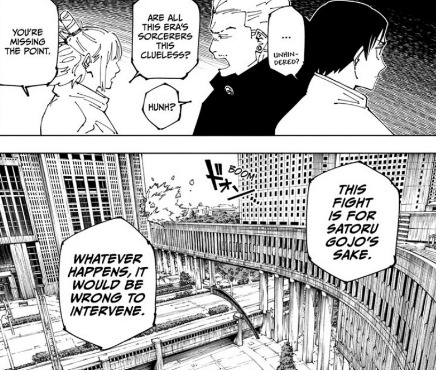
Gojo wants the old generation out and the new generation in, but Gojo resembles the old generation too much. Old sorcerers like Hajime and Sukuna respect him, Hajime argues that Gojo being able to fight for his pride is far more important than him living to the end of the battle when Yuta wanted to interfere and help him.
Gojo's death isn't a surprise curve ball that Gege is throwing us for shock value, it's a result of his choices throughout the manga. A manga about change, and the change between generations is not going to punish a character for remaining roughly the same. Of course you might find it disappointing that Gege didn't give Gojo the chance to grow and change and experience a character arc like Megumi or Yuji, but Jujutsu Kaisen is a tragedy, and the way Gojo's arc ended is consistent with what Gege wrote.

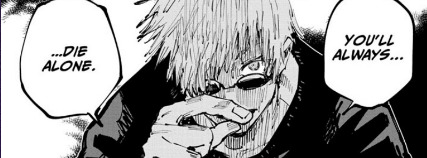
Jujutsu Kaisen is not just a tragedy though, it's a manga about death. The manga begins with Yuji's grandfather warning him not to die alone the way that he did. His grandfather's dying words are what motivate Yuji throughout the beginning of the manga as he's searching for a "proper" death.
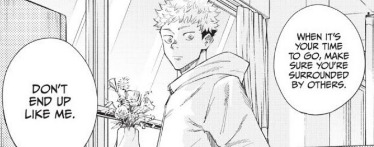
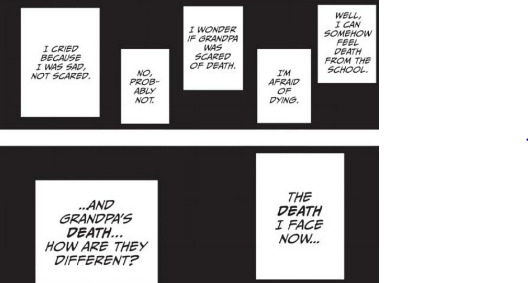

One of the major themes of Yuji's character is a contemplation of death. He accepts that death is inevitable, so he wants to save them from the gruesome deaths they'd experience if they became victims to curses and allow them to have a more satisfying death. Yuji's grandpa died an unsatisfying death because he died alone in a hospital room. Yuji even tries to make his own death a satisfying one because he believes by dying to seal away Sukuna he'll reduce the total number of casualties to curses.
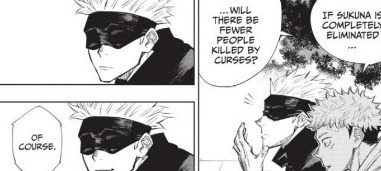
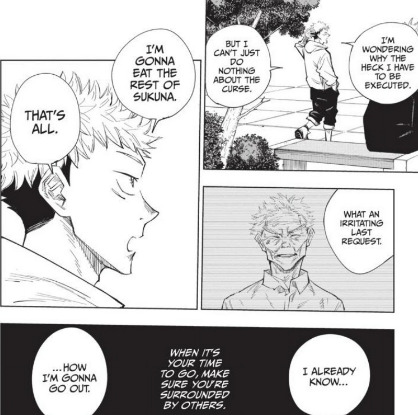
Jujutsu Kaisen keeps investigating the theme of death and what exactly would make for a satisfying death. At one point it's all but stated that death is the mirror that makes humans analyze their lives.
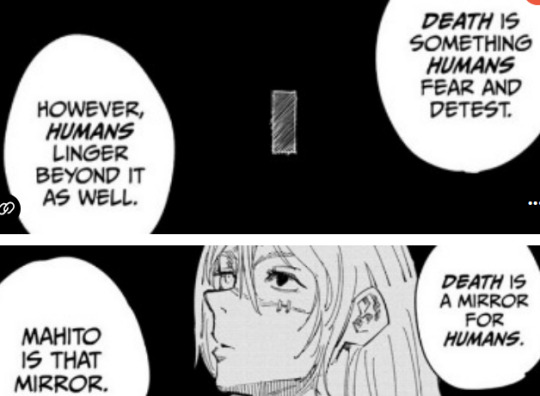
When Yuji fails to save Junpei from the "unnatural death" it calls into question whether or not his goal of saving people from unsatisfying deaths and the gruesome deaths caused by curses is even feasible. Nanami even says that Yuji might not be able to accomplish his goal and warns him away from the path.
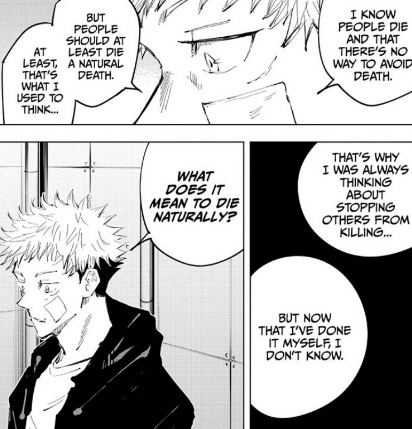
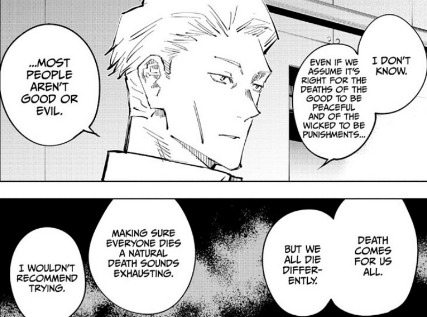
We see repeated unsatifying deaths in the manga, each time someone reflecting on their deaths that they weren't able to get what they wanted out of life. This list comes via @kaibutsushidousha by the way I'm quoting them.
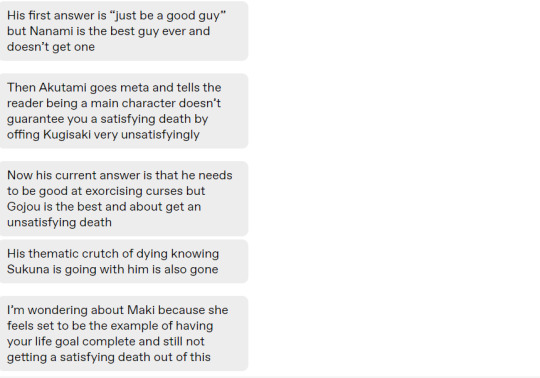
Nanami's a character who chose to work as a sorcerer because he didn't want to evade the responsibility of doing all you can to help people, he wanted to believe he's somewhere where he's needed. He never runs away from responsibility like Mei Mei does so he quite literally works himself to death, living and dying as a sorcerer. Nanami or Gojo's dying hallucination of Nanami even says as much, his death is the result of him choosing to go south and returning to be a sorcerer.
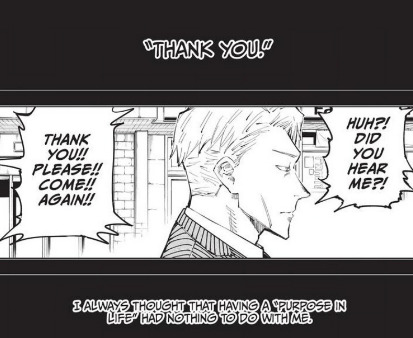
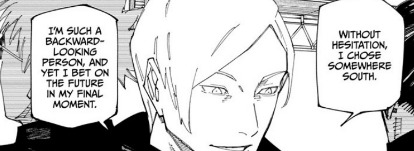
Maki chose revenge against the Zen'in over her sister, and as a result Mai is dead. Maki has all the power in the world now, her revenge complete but she's left with a sense of "now what?" She's as strong as Toji now but she failed to protect her sister, and it's the result of the choices she made. Maki's reflection isn't triumph, it's "I should have chosen to die with her."

Even Yuji himself is robbed of his narrative purpose. The manga began with Yuji saying he wants to choose how he's going to die and he'll die taking out Sukuna with him so he can reduce the number of people killed by curses in the world. Both of those things are thrown in Sukuna's face. Number one the amount of people Yuji can save by permanently killing Sukuna is now a moot point because he let Sukuna rampage in Shibuya.
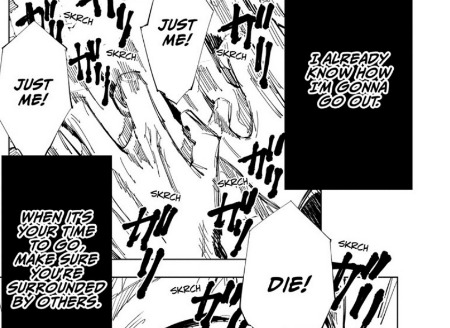
Number two, Sukuna isn't even in Yuji anymore. To build on what Comun said though, this repeated tragedy has a purpose to it and understanding requires understanding that Jujutsu Kaisen is an existentialist manga. Existentialism is basically a school of philosophy centered around the question of "Why do I exist?"
There's nothing about the invetability of death to make you question why you're alive in the first place. In the myth of Sispyhus, Albert Camus boils down all of philosophy to one question.
"There is but one truly serious philosophical problem, and that is suicide. Judging whether life is or is not worth living amounts to answering the fundamental question of philosophy. "
All of philosophy is should I shoot myself in the head or should I keep living? Everything comes after that question, which is why in Jujutsu Kaisen a lot of the characters motivations revolve around them contemplating death. Sorcerers exist in a world where they can die any moment, and as Gojo says most of them die alone. It might be the nature of sorcery itself that causes so many people to die, not only are they dying because they are trapped in an uncaring system, but the characters themselves aren't really attempting to live outside of it. They live and die as sorcerers, replaceable cogs in the machine.
All of these unsatisfying deaths may just be the result of all these characters making one choice, to live as sorcerers rather than people. Because to exist means to live in the world.
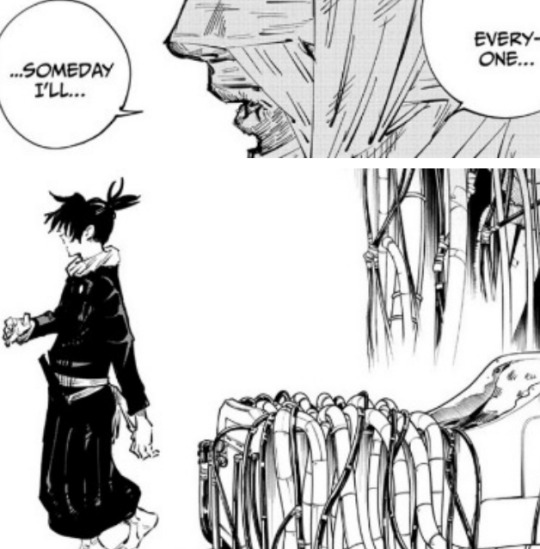

Even in Mechamaru's case, his goal is deeply existentialist by what I defined, all he wants to do is live in the world with everyone else rather than be stuck in his hospital room but his actions contradict that goal. Instead of letting his friends come and visit he's obsessed with the idea of getting a normal body because he feels that's the only way he can exist with everyone else, he makes a deal with the devil, he lies and goes behind their backs. He wasn't living with everyone else in the world and he could have chosen to, he chose wrong and his death is the result of that choice.

Jujutsu Sorcerers aren't living in the world. They're living in a little snowglobe far removed from the world with its own rules, most of them regressive and disconnected from the rest of society. If you define existentialism as just "living in the world' then a lot of these characters aren't, because they only exist in the world of sorcery.
INVISIBLE BUFFY: What are you talking ab-
SPIKE: The only reason you're here, is that you're not here. (drinking) INVISIBLE BUFFY: Right. Of course, as usual there's something wrong with Buffy. She came back all wrong. (moving around on the bed) You know, I didn't ask for this to happen to me.
SPIKE: Not too put off by it though, are you? (drinking) INVISIBLE BUFFY: No! Maybe because for the first time since ... I'm free. She tosses the sheet aside. Spike looks around, trying to figure out where she's going.
INVISIBLE BUFFY: Free of rules and reports ... free of this life.
SPIKE: Free of life? Got another name for that. Dead.
Not living in the world with everyone else is the same as being dead.
A lot of these characters either make the choice to act alone, or be a jujutsu sorcerer rather than a person and because of that they die as sorcerers, b/c sorcerers die that's what they do. Mai didn't want to keep living as a hindrance to Maki so she kills herself. Maki didn't want to be anything other than a sorcerer, so her little sister dies and she's not a big sister anymore. Nanami chose to leave his job behind and become a sorcerer again, he dies as one.
Of course I don't think the manga is punishing characters for being too egotistical, but rather too unbalanced. If anything Mai is too selfless and that is why she died, she didn't want to live for herself and chooses self sacrifice for her sister. An unbalance between selfishness or selflessness results in an underdeveloped ego. Jujutsu Kaisen doesn't punish individualism per se, moreso if you're not a fully developed individual you won't last long. Because it's also a manga about growing up in the world, and a person who doesn't have a healthy, mature, well-balanced sense of self is not a grown up.
This twitter user det_critics points out that Gojo (and also Yuki + Yuji's) failures in the manga can be attributed to the fact they don't have real senses of self.
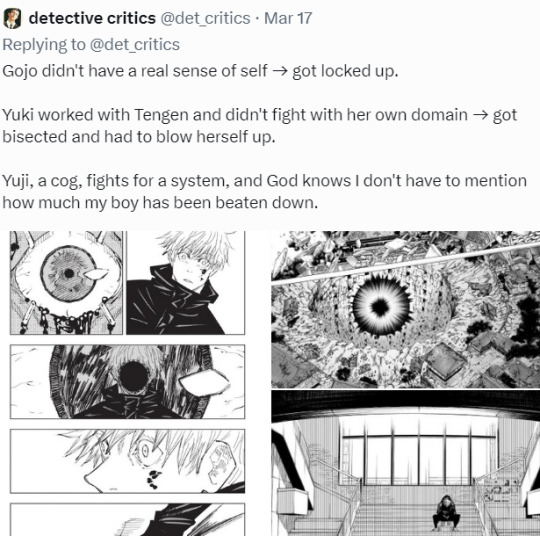
Gojo has an identity crisis as outlined by Geto, "are you Satoru Gojo because you're the strongest, or are you the strongest because you're Satoru Gojo?"
It's a challenge for him to find some reason to live outside of being the strongest, and in tragic fashion Gojo just doesn't find it in time. Gojo lived for fighting others, and proving to himself that he's the strongest, and that's how he dies.
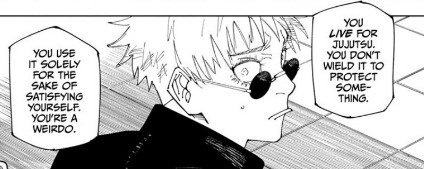
There's something I like to say about narrative punishment in stories. There are two ways to punish a character, you either don't give them what they want, or you give them exactly what they want. This is the latter, Gojo wanted to find someone stronger than him because deep down he believed that nobody could understand him unless they were on his level. He wanted to be surpassed, and that's why he focused on creating stronger young sorcerers, but he never shook himself of the belief that only someone as strong or even stronger than he was could ever be emotionally attached to him so he made a deliberate choice to draw a line between himself and others.
Gojo's essentially gotten what he wanted from that choice in the worst way possible. The student he picked to succeed him Megumi, has his body stolen and kills him. Gojo is surpassed, but it's not by one of his own students it's by an enemy that's not only trying to kill Gojo but is going to massacre his students afterwards.
Gojo's spent his entire life believing that because he's more powerful that makes him inherently different and above others, and being lonely because he himself believed he couldn't relate to ordinary people and he dies like an ordinary person, an unsatisfying death where he wasn't able to bring out Sukuna's best, where he gets unceremoniously cut in half offscreen but yay he's no longer the strongest. He's gotten exactly what he wanted. Megumi is still not saved, Sukuna's probably going to kill more people because Gojo failed to stop him here, but hey at least he stopped to compliment Gojo.
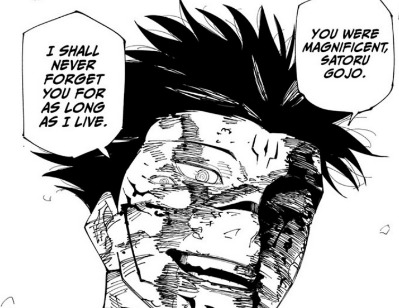
It's empty, but it's empty because of the choices Gojo made in life to just not bother connecting to people or develop any kind of identity besides being a sorcerer. Gojo lives and dies as a sorcerer, and his dying dream is returning to a teenager being surrounded by everyone he was with during his school days, because that's the happiest time in his life. Ironically he was happier before he became the strongest, because that was the only time in his life that he allowed himself to connect to people.
However in the eyes of others, he is someone who has it all. That's why he is always alone. There was no one who could hold the same sentiments and mutually understand him. Geto was the only one who could understand what he was trying to say, and the only one who could communicate well with him.
It's no coincidence Gojo and Geto die exactly a year apart on the same day, if anything I'd say the reasons they die are similiar to at least thematically. They both die because they don't want to live in the world. Geto thinks the world is too corrupt and GOjo doesn't want to be anything other than a sorcerer, both of them fail to adapt.
「 'It's just. . .'
It's just that it was what Geto had to do.
[...] To someone like him, the reality that the world of sorcerers presented to him was just too cruel.
'. . .that in a world like this, I couldn't truly be happy from the bottom of my heart.'」
They can't be happy in a world like this from the bottom of their hearts, so narratively they both die. The things they chose to live for at the end of their life they fail to accomplish, Gojo is no longer the stronget, Geto fails to wipe out mankind or make major changes to the world and they die as normal people unsatisfied because they weren't trying to live in the world and make connections to others. They die almost karmically a year apart because their main connection for both of them, the thing which made them feel connected to the world and other people was each other.
Which is why this panel breaks my heart and is so narratively satisfying because of how unsatisfying it is...
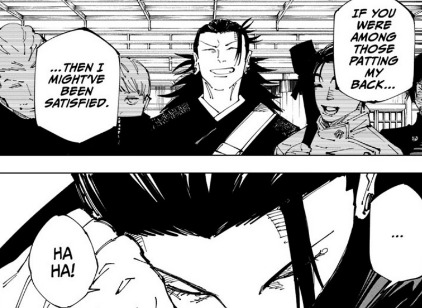
"If you were among those patting my back... then I might've been satisfied."
Gojo reflects that he's not satisfied dying against Sukuna, not because he failed to give him a good enough challenge but because Geto wasn't there to pat him on the back. The one thing that would have satisfied him he couldn't have, because he didn't live to connect to people he lived to be the strongest and he died alone as the strongest. There's just something deeply upsetting about Gojo's dying dream fantasy just him being there talking with all of his dead friends who he never appreciated or connected to properly when he was alive. Knowing that if something had just gone a little differently, that even if he had to die no matter what he could have died happier if Geto was among the people saying goodbye to him because that connection with Geto is what gave his life meaning.
Dazai Osamu: "A life with someone you can say good-bye to is a good life, especially when it hurts so much to say it to them. Am I wrong?"
-Bungou Stray Dogs Beast
#gojo satoru#jjk spoilers#jjk meta#jujutsu kaisen 236 spoilers#jjk 236#jujutsu kaisen 236#jjk 236 spoilers#jujutsu kaisen#jujustu kaisen meta#jujutsu kaisen theory#jujutsu kaisen manga#satoru gojo#geto suguru#suguru geto#satosugu
1K notes
·
View notes
Text
yuji and kenjaku? or jin and kenjaku?
By now we've reached chapter 244, Jjk is becoming more and more unpredictable, but I suspect that when we know who Kenjaku really is and why he and Yuji are close, the answer might be about what Wasuke wanted to say to Yuji just before leaving him forever.
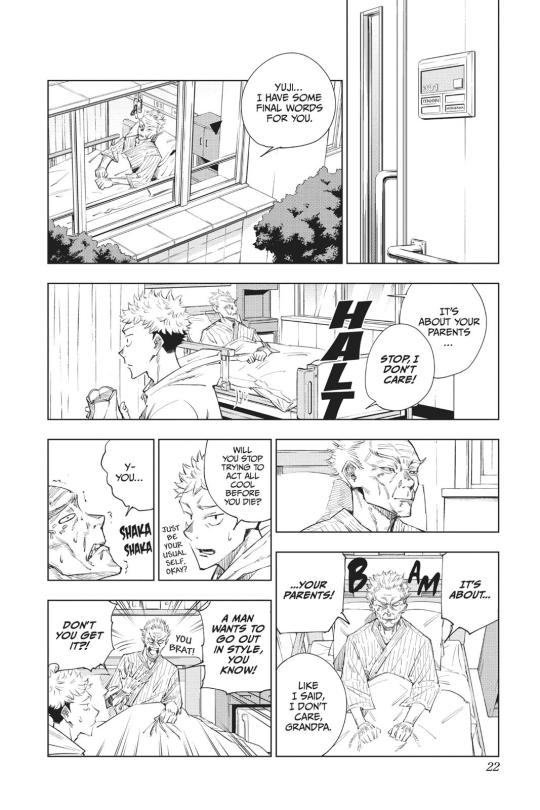
What reinforces this thought of mine is the fact that in chapter 143 Wasuke seemed to know that if Jin continued to be near the person who took Kaori's body, he would be in danger. Also, this chapter informs us that Jin was apparently aware that Kaori was not "Kaori", because Wasuke says "But her death was-" By her death he meant -> the death of the real Kaori. This is probably exactly why Wasuke thinks his son is in danger. So we are certain that Kaori is theoretically dead, but... here she is. It is obvious that anyone, especially a parent like Wasuke who is aware that that woman cannot be Kaori, would not want his son to be with a dangerous impostor.
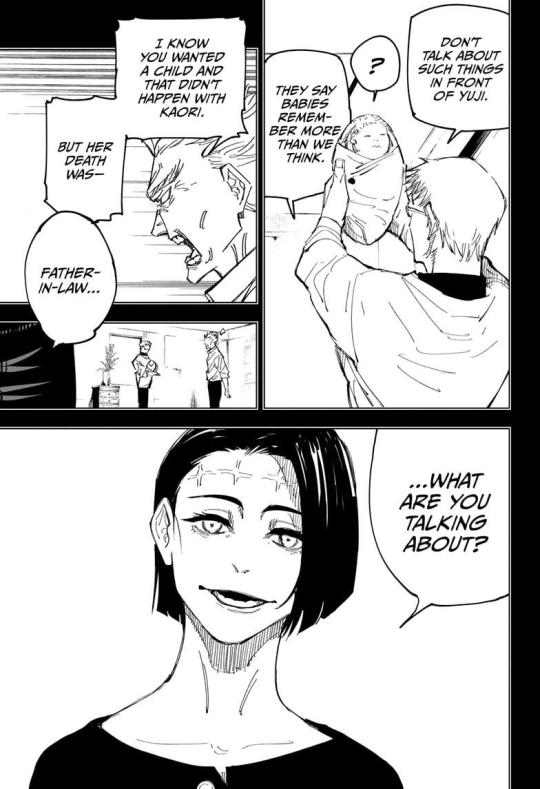
Jin doesn't seem to care much and it's very strange… and creepy. When Wasuke begins to speak, Jin interrupts him, making it clear that he has no intention of listening to words that accuse Kaori.I've always wondered what connection there is between Yuji and Kenjaku, but perhaps the real question is: what connection is there between Jin and Kenjaku?
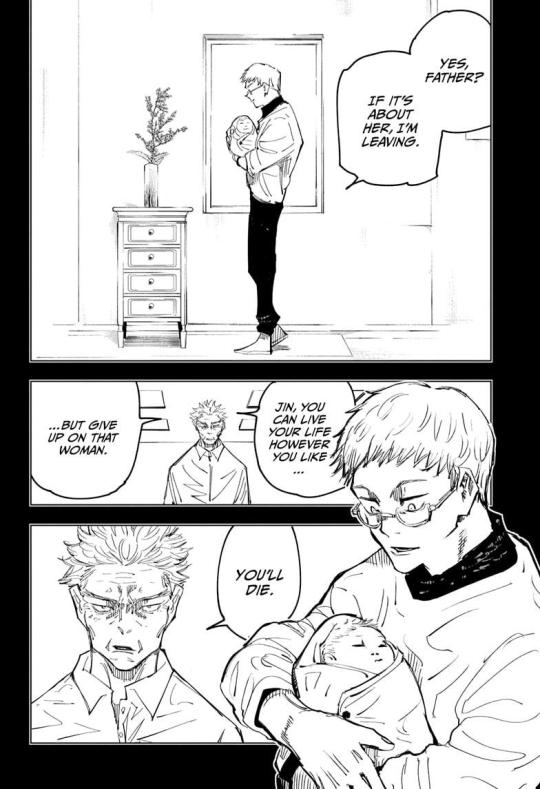
And... what if it all started from the two of them?
#reasoning#sometimes I think too much ahah#there are too many mysteries in this manga#jujutsu kaisen#jjk#jjk theory#itadori yuji#itadori jin#itadori kaori#kenjaku#yuji itadori#jjk kenjaku#itadori yuuji#yuuji itadori#jujutsu kaisen manga#jujutsu kaisen theory#kaori itadori#jin itadori#itadori wasuke#jjk manga
164 notes
·
View notes
Text
Maki has the potential to be the ultimate counter to Sukuna right now. Here's how she might play a big role in his defeat.
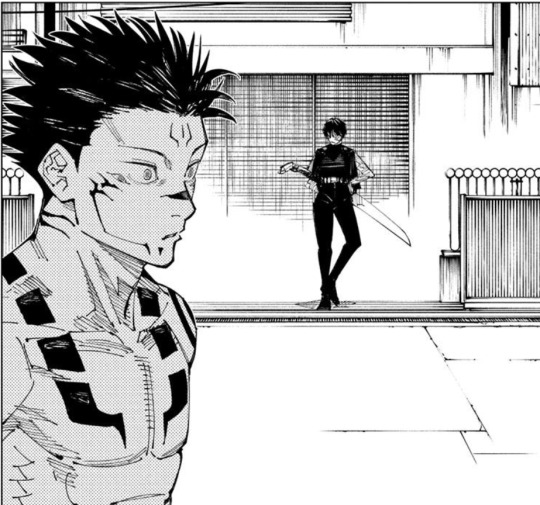
For ages, I thought Maki was a terrible match up for Sukuna, but after rereading some of the manga, I realised how she could counter almost all of his abilities if the good guys played their card right.
How she can seriously hurt Sukuna:
Sukunas reversed curse technique is so broken that there is almost no way to really damage him, he has more cursed energy than anyone else in the verse and since he was refreshed by incarnating the chances of him running out are pretty tiny.
But there is one thing we know reversed curse technique can't heal. Damage to the soul

It's stated twice in the manga that Sukuna can't heal Mahitos Idle Transfiguration, a technique that attacks the soul directly.
And Maki just so happens to have a weapon that can cut the soul of its target, in fact this is even pointed out in the manga.

Since Gege points this out himself, I feel like there is some real grounds to say Maki might be able to really damage Sukuna.
How Maki would survive Dismantle and Cleave.
Other than the fact we see characters like Kusakabe, Higaruma and Yuji taking hits from dismantle and cleave, (all characters that should be way less durable than Maki).
I think there's solid evidence that Maki could even doge these attacks before they hit her, even though the slashes are invisible we see Mahoraga deflect one, meaning they do travel to hit their target and could be dodged.
How would Maki see them coming?
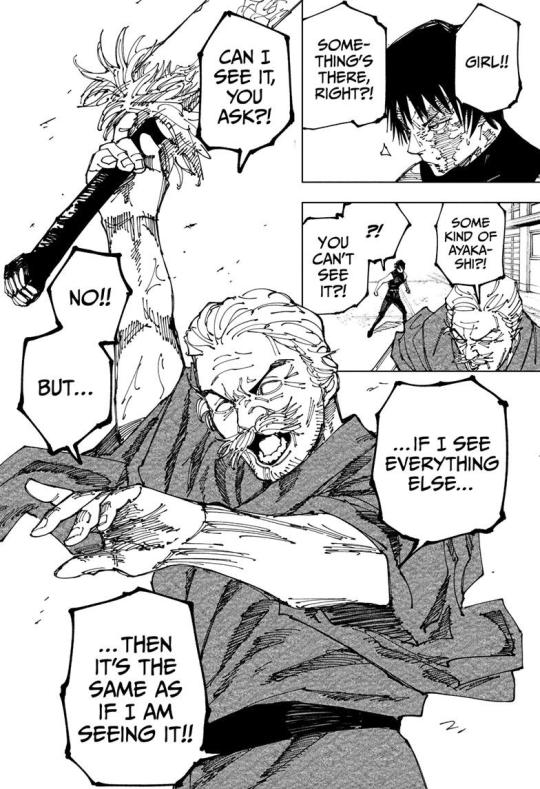
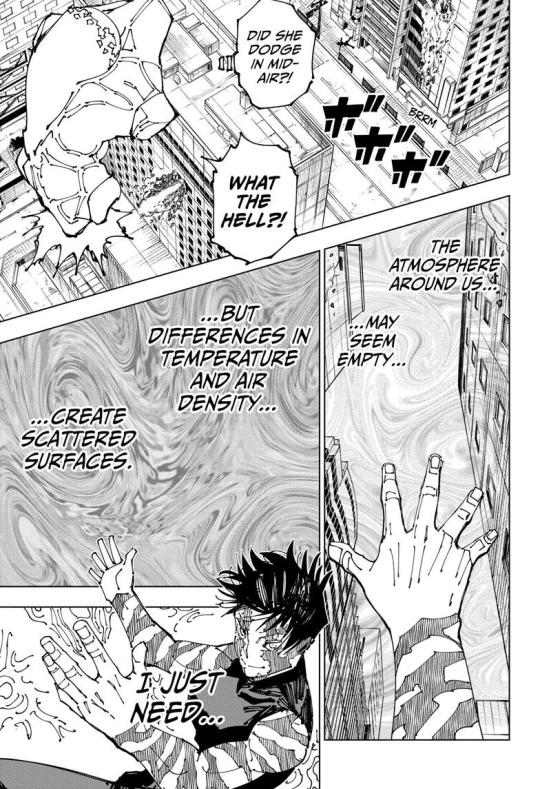
It's shown that characters like Maki, Toji and Daido can see invisible things by seeing how they affect the space around them, so her seeing Sukunas slashes makes sense.
How would she survive Sukunas domain?
Since Sukunas domain target inanimate objects with no cursed energy as well as sorcerer's, it's one of the few that Maki isn't immune too, so how would she survive?
Well there is one thing we've seen able to dispel domain expansions and can be used freely only by someone like Maki.
The Inverted Spear of Heaven!
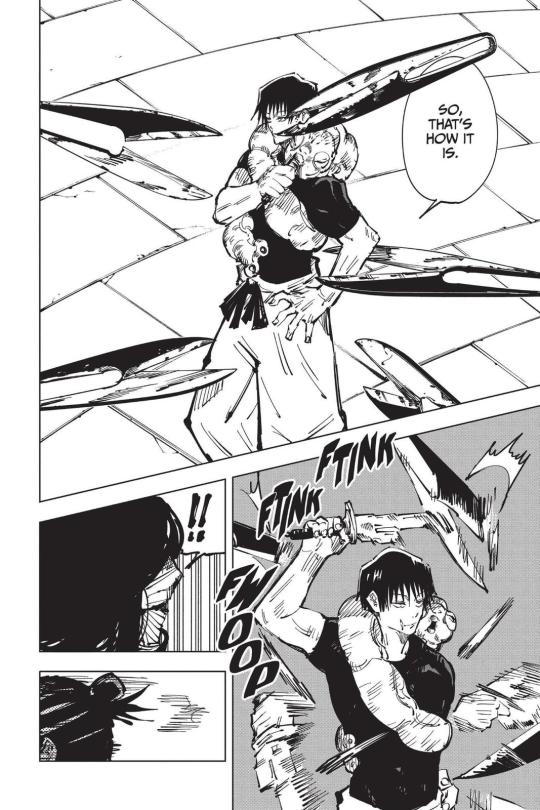
Toji dispels this cursed spirit's innate domain by bringing out the Inverted Spear.
bUt goJO DesTrOyeD iT
No, Tengen says Gojo either sealed it or destroyed it, we don't know which
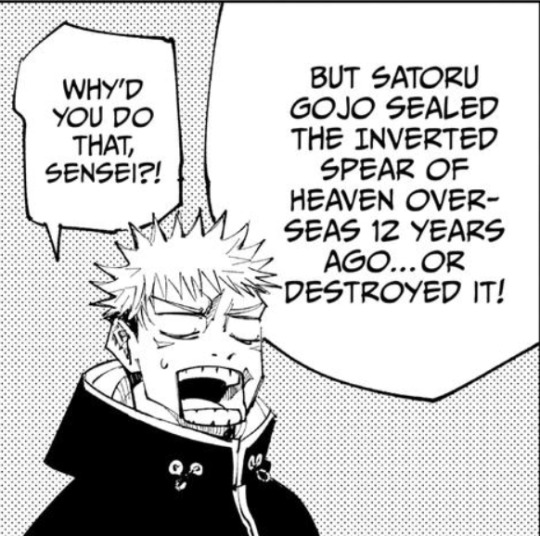
While Gojo definitely wouldn't want the higher ups to know about a weapon that could counter him, I don't think he would destroy something as unique and valuable as the spear. He probably hid it somewhere, only he could get it.

In the time between Gojo getting unsealed and his fight with Sukuna, I think it's fully possible he would retrieve the spear and give it to Maki, seeing how she had awakened and knowing how well Toji used it.
If he did give it to her, and Sukuna tries to open his domain, it would collapse as long as the blade is exposed to it.
Finally, how would she get close enough to strike?
As much as I love Maki, she is not on Sukuna's level of speed and in a one on one fight she would never get close enough to hit him, but if he was distracted by a bigger target, then she could land a sneak attack since she's basically undetectable.
And who's a better distraction then Yuta Okkotsu, he is constantly described as having overwhelming cursed energy and with Rika manifested that's only going to be more extreme.
Sukuna doesn't have the Six Eyes and remember Gojo was the only person to ever notice Toji when he was standing behind him, I think that while Yuta holds off Sukuna there is a perfect opportunity for Maki to land a clean hit with the Soul Split Katana.
Maki is the only heavy hitter that's been completely absent from the Sukuna fight so far, and I really hope Gege uses her to her full potential here, since he loves Toji comparisons a parallel to this shot would be awesome to see
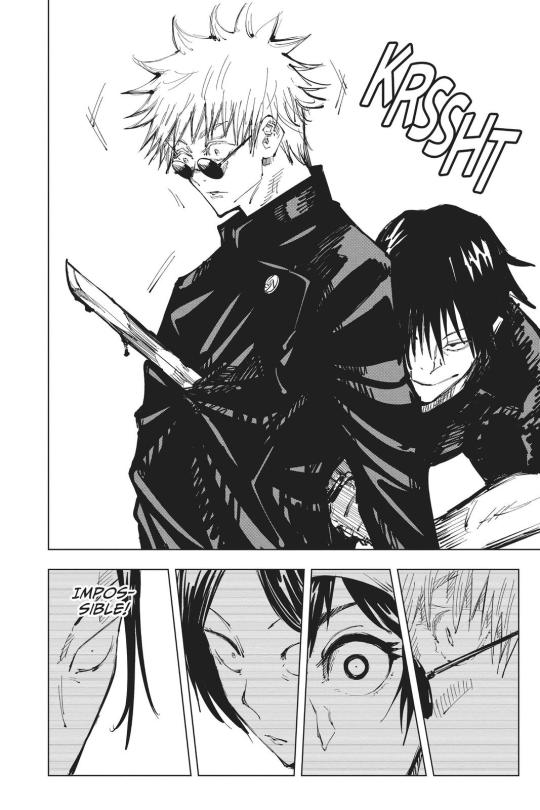
I don't think Maki will be the one to defeat Sukuna, that has to be Yuji, but I hope she gets to at least do some serious damage that lets Yuji have an actual fighting chance.
Of course Gege could pull some bullshit "I had a perfect counter to this from 1000 Years ago" again, but I hope he doesn't
#jujutsu kaisen#jujutsu kaisen theory#jujutsu kaisen prediction#jjk#jjk theory#jjk theories#jjk maki#maki zenin#maki#jujutsu kaisen maki#jujutsu kaisen analysis#sukuna#ryomen sukuna#jujustu kaisen manga#jjk manga spoilers#jjk manga#jujutsu kaisen spoilers
126 notes
·
View notes
Text
You were defeated by your own self , self-loathing,selfeating, Sukuna .- twisted power of love
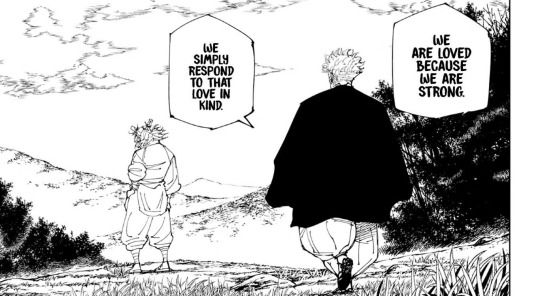
The projection of Gege's self-hatred onto his favorite character.
---The hardest battle you'll ever fight, is against yourself---
TL;DR
And thus, Yuji will strive to separate (Cut like Sukuna) his opponents BUT from their "evil" and direct his energy only towards this "evil," which is the opposite of a Sukuna's self-hatred power ,Yuji can be viewed as a mirror reflecting Sukuna's twisted power of love.
Therefore, the first chapter essentially, by title, reflects Yuuji and Sukuna
Sukuna's statement that "only the strong are loved" ("strong" can be of different kinds)takes on a particular significance: he attracts love through his strength , highlighting his main conflict reflected in his relationship with Yuji. For Yuji, strength and violence are alien; his essence is permeated with kindness. As a result, Sukuna feels his vulnerability, realizing that his achievements hold no value in Yuji's eyes. Experiencing self-hatred, he understands that while Yuji is simply kind to people, his love can be obtained "just like that," whereas towards Sukuna, Yuji harbors disdain, which is painful, as Sukuna has become strong out of a desire to receive love.
"Thus, he became strong because he realized that they loved strength, while he himself was weak. From this, he concluded that by being strong, he would receive love and respect simply for his existence as strong, and he would no longer feel weak. Therefore, his desire for love lost its significance, as only the weak needed it. Now his primary strength became his "love". And this means that using this strength towards himself and others can be compared to its application on the battlefield, where it is used to defeat the enemy. Thus, those who seek love from him will be destroyed, because all he has and who he is, is strength. Without it, he is nothing. "This implies that he cannot be loved because only the strong are loved". Thus, this expresses contempt for weakness, as the weak rely on "love" and connections, while he, being strong, does not need these connections, leading to rejection of both self-love and everything associated with it, and therefore, it is an expression of hatred.
The application of force (hatred) even towards oneself, towards one's weakness - the human side.
Thus, the application of force towards oneself and one's weakness in this context becomes a manifestation of contempt for the human side and dependence on love. This path can be interpreted as an extreme way to achieve self-assurance, which, nevertheless, cuts off from love and leads to hatred towards both oneself and the surrounding world.
The application of force towards oneself and one's weakness here is presented as a way of rejecting love and refusing to accept the human side - thus self-denial-self-eating.
This contradiction is manifested in the irony of the situation: a person becomes strong in his desire to rid himself of his weakness and dependence on love, but as a result, he becomes consumed by hatred, both towards himself and towards the surrounding world.
This desire is expressed through the denial of the human side, the refusal to accept one's weaknesses and dependence on love. This leads to strength becoming the main attribute of personality, while human connections and emotions, such as love, are rejected as unnecessary and even harmful.
Thus, the application of force towards oneself and one's weakness, as well as the denial of love and dependence on it, create a cycle of self-destruction and hatred towards oneself and the surrounding world. This can be interpreted as a path that, although aimed at achieving self-assurance, ultimately leads to isolation and spiritual destruction.
The cycle of samsara.
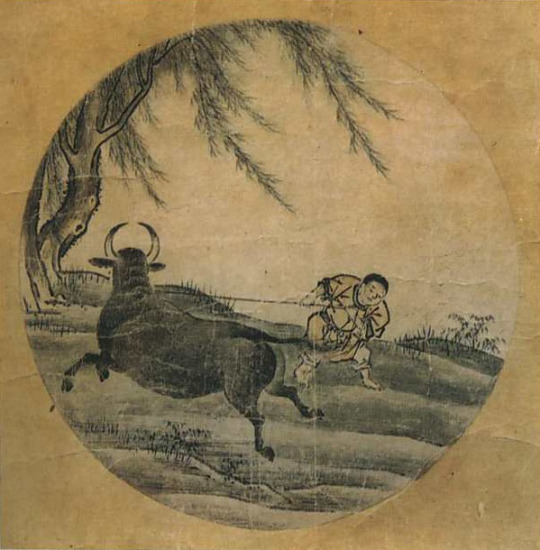
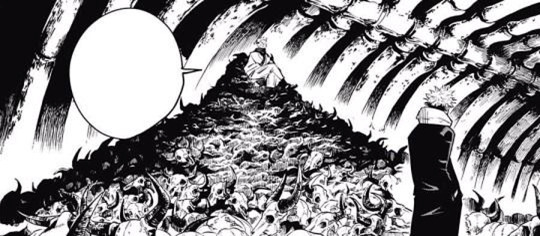
("twisted love ") his curse and power "kitchen"- (10 bulls Buddhism- you can read in wiki ) - he literally kills (eats) the “bull” "human" his own self constantly, so there are a lot of their skulls inside him - his own , and he sits on the throne of them, his essences, believing that he has “surpassed” himself - the human nature
"Sukuna is surrounded by the remnants of his failed attempts to transcend his ego, symbolized by the "skulls" of his former selves."
maybe this is part of the “vow” of constantly fighting (eating) within yourself
Self hatred
Like the seals on his shoulders - circles
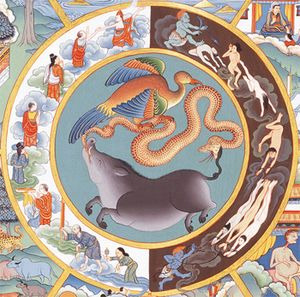
Sukuna is the strongest because he suffers the most, hates himself and experiences an internal conflict that generates cursed energy.
Anger (rage, aggression, a sense of vengeance, disgust) is represented in the image of a snake. The snake typically slithers away when approached by a human or attacks them. Similarly, a person seeks to eliminate an irritating object from their field of perception, either by avoiding it or destroying it. This is similar to his behavior and avoidance of Yuji - the epitome of absolution - kindness, because he unconsciously experiences disgust – the truth.
The Rooster is a symbol of passion, as it is both the owner of a harem and capable of finding a tiny grain in the grass and dust – exactly what it needs; just as passion keenly selects its object of desire from the multitude presented. This can be compared to how Sukuna chooses his opponents.
Ignorance (neglect, stupidity, laziness, foolishness) is represented in the image of a pig. The pig eats everything indiscriminately, unable to discern between good and bad, fortunate and unfortunate due to its lack of understanding. Incidentally, the pig is the only animal unable to lift its head to the sun. However, Sukuna usually regards others disdainfully from top to bottom, like a large pig, experiencing "foolishness" because he has confined himself within the pigsty of his own convictions.

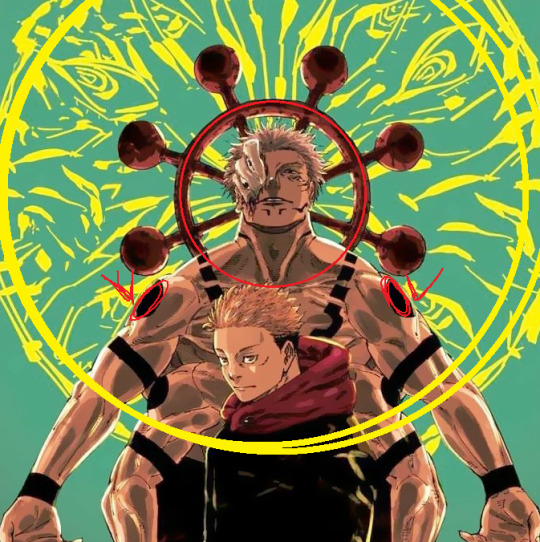
Perhaps not intentionally, but symbolically, Yuji's head is at the level of his heart.
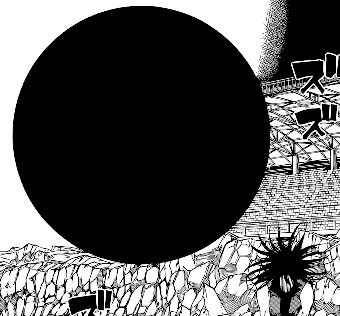
In other words, the cursed energy spawns a concentration circle of hatred , trapping individuals in an endless cycle of conflict,a cycle of samsara- in which people remain fighting with another person with their emotions. - mostly hatred
This could be seen as a vow or a struggle to overcome one's own limitations , by constantly confronting and consuming aspects of the self.

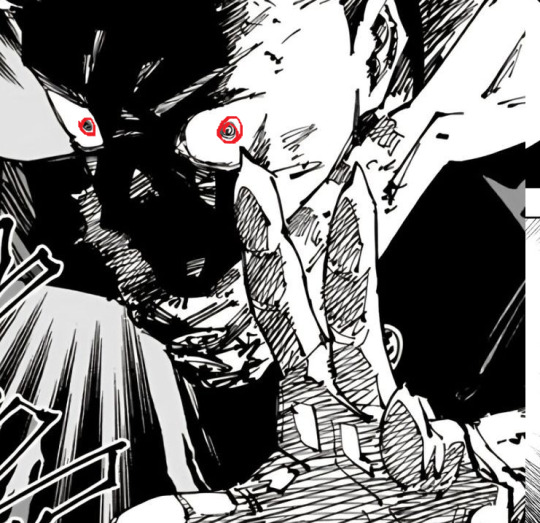

"You weren't merely defeated by external forces, but by your own internal strife—your perpetual disdain for your human side."
your downfall stemmed from your own internal contradictions, which morphed into a binding oath (all his seals on his body literally seal a person in him). Your disdain for humanity, extending even to yourself, became both your strength and your curse, corroding your soul from within (gestures toward the mask).
(the mask) Much like Tengen, embodies a constructive "emptiness" that exists harmoniously with the world, at peace with people. However, Sukuna's "emptiness" is purely literal, representing a detachment from humanity, a void of sorts.
You've lost all sense of purpose, consumed by self-loathing to the point of utter emptiness.
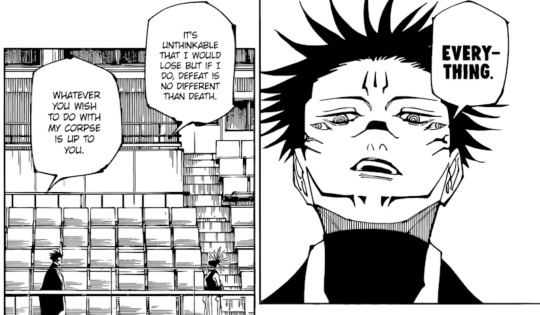
he is his strength - and if he loses, he "strength "will die, which means to him that he is nothing(because "I" = strength ),( which everything) he can feel , towards "him " is hate, emptiness ,insignificance - nothing - cant take "love".
nothing is nothing - so it his - corpse
paradoxically there cannot be “love”, because only the “strong” are loved.
It's as if he can't even comprehend the idea of being loved or valued without his strength.
Without it, he feel like a mere shell of himself, devoid of purpose or meaning. - corpse
his "manhtra "
His strength defines him, and should he lose it, his very essence will wither away, leaving him feeling like nothing.-(which everything to him.) Because in his eyes, strength equals identity, and without it, he is left hollow, consumed by feelings of worthlessness and self-loathing.
To him, strength is everything, and without it, he feels empty and insignificant. He's trapped in a mindset where only the strong are valued or capable of receiving love, leaving him unable to grasp the concept of being cherished for anything other than his strength. Without this defining trait, he fears becoming a mere shadow of himself, devoid of purpose and meaning—a walking corpse. His mantra revolves around the idea that his strength is synonymous with his identity; losing it would strip away everything that makes him who he is, leaving behind only a hollow shell consumed by feelings of worthlessness and self-doubt.
This fear of worthlessness drives him to cling desperately to his strength, as he sees it as the only thing protecting him from a profound sense of misery and insignificance. It's not so much a fear of death that motivates him, but a fear of experiencing the emptiness and smallness he associates with weakness.
So when he talks to Yuji he projects
You are my special
"Get lost in me" - "Become me."
I wanna feel your heatwave - Break down.
I love you, baby - I hate you
because you don't yield to me, to my strength
A world spinning in ambiguity - on the other hand, if Yuji does not give in, then Sukuna loses his “power” - himself and his hatred,"And will make him feel (1 )'loven'."- (This means that Yuji literally robs him of his purpose - his strength - himself - his self-loathing.)
(1 )This suggests that Sukuna's identity is closely tied to his ability to dominate others, especially Yuji. If Yuji resists, Sukuna not only loses his power and sense of self but also his profound self-hatred, leaving him vulnerable to experiencing an unfamiliar emotion—love. In essence, losing control and self-hatred allows Sukuna to explore a more vulnerable side of himself.
You are my special
"Even if the meaning is not correct, the fact is that they mirror to each other."
He wants to prove that his own existence and self-hatred are justified.
Sukuna conducts " a series of trials " before Yuji, aiming to prove to him that his purity of soul is not the basis of his strength. He expresses the belief that the source of strength lies in the ability to be cruel and hateful rather than kind. In his worldview, strength arises from self-loathing and denial, while love and compassion are seen as manifestations of weakness.
Sukuna seeks to affirm his beliefs through these trials and sufferings. He desires to break Yuji, to bring him down to his own level of hatred, in order to confirm his own existence and self-hatred. For him, pure strength becomes a symbol of his self-loathing - his own "self." He seeks to reinforce this hatred through Yuji, who, in his opinion, is excessively pure and capable of loving others unconditionally, which, in his view, renders his strength useless and undermines his own existence.
Overall, Sukuna's character is driven by a complex interplay of fear and a desperate need for validation through the lens of strength and self-loathing.
SURVIVAL
"You're so weak yet you cling to life?"
CHILD "I"- lack of strength" - weak and misery- unwanted , rejected, unloved, insignificant, unimportant, nothing, profound sense of emptiness and smallness.- DEATH
"You should spend your lives stifling (EATING)your misery. "
(Sukuna -Child - Yuji)

It seems to me that here it is being said that a brother or another close person can replace a parent in terms of providing love and understanding "self", as well as becoming a reliable support for the individual.
Perhaps previously he believed that self-love was meaningless (although he assumed this applied to others as well), but after encountering Yugi's soul, he realized that love, akin to dedication to an ideal, gains significance as it can transcend death and become something eternal, which is the true meaning. This enlightenment proved more significant than Sukuna's physical prowess, piercing his self-perception for the first time and shaking him to the core.
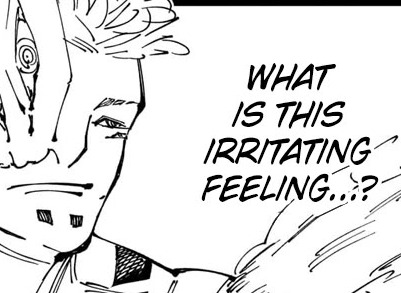
As the only thing he had been doing was killing time to die.
From the expression on his face in these two frames, there is a similarity: when it comes to love, he appears irritated, but this time he felt it - the love - and experienced pain, for the first time in a long while.

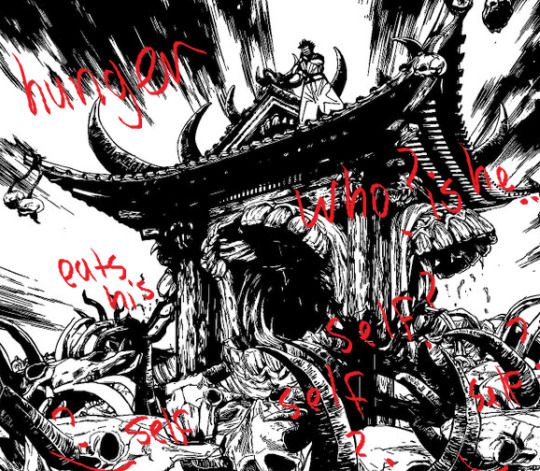
Sukuna, as the most powerful being, has moved away from the notion that his strength guarantees victory. Now it's more of a shadow of an ideal—meaning himself as well, because Sukuna possesses only power—a symbol of relentless personal resilience that he finds in Yuji. He has realized that without this strength, he is devoid of purpose, and in his pursuit of it, he has lost everything, including himself and his inner content. While in Yuji, lacking this power, his eyes shine like a beacon of humanity the love he needed—an ideal that transcends himself, through the idea of protecting others, akin to Prometheus his kindness. This irritates Sukuna and casts doubt on his own existence.
The deal is that Sukuna, regarded as the "strongest " was bored and annoyed with Yuji because his strength was based on something Sukuna could never understand or accept—the true essence of love.
Love, as a force and a tool, is immeasurable except through the sacrifice of those who gave their lives for the ideals of higher humanity—those whom Sukuna could not understand and whom he killed in his pursuit of "strength" and acts of violence deemed "supreme" beyond human nature.
Only after meeting Yuji did Sukuna gain insight, and his transformation can be characterized as a (2 )manifestation of love. Because he begins to "understand" other aspects of human existence, such as compassion, selflessness, and the ideals of higher humanity. In this context, his insight and change are perceived as manifestations of (2 ) love—understanding and accepting these human qualities that he previously could not comprehend or acknowledge.
The (1 ) first follows from the (2) second, but Sukuna hasn't understood it yet, he has only feel it.
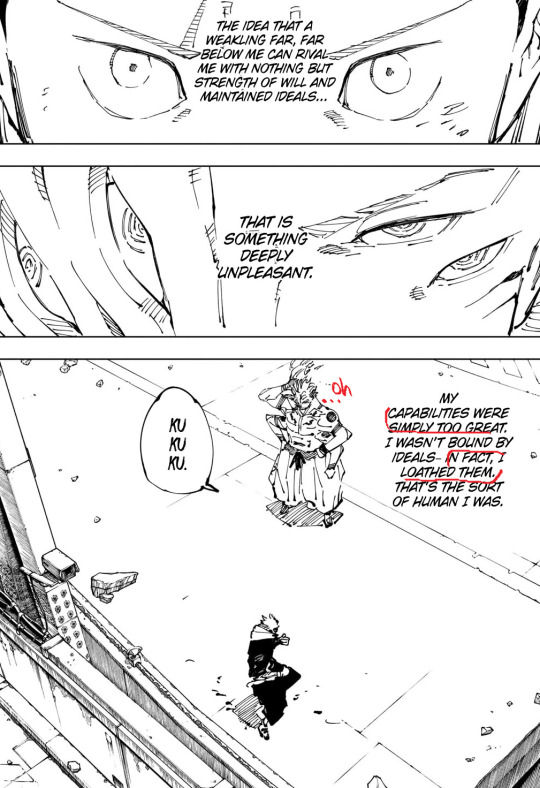
Sukuna has long lost the battle against his own hatred, mired in feelings of anger and jealousy. These emotions only fill him with disappointment and rage, fueling his desire to seek ways to cause pain and damage solely to destroy Yuji and undermine his faith
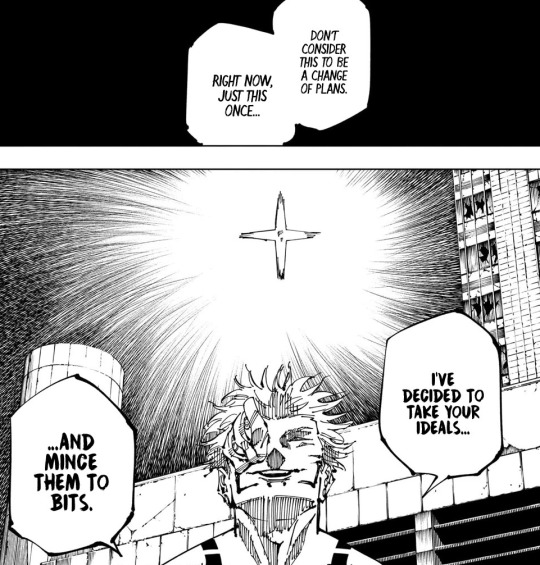
The acknowledgment that his kindness - love is genuine and unconditional seems incomprehensible to him, as if he's afraid to admit that such a thing is possible - because he was not loved and had no one. and that means he didn’t need anyone to satisfy him


Short version
He remembers his yearning for love during childhood, seeing it as a symbol of vulnerability and lack of significance. Regarding dependence on someone "stronger" as a weakness, he holds the belief that seeking affection and connections is characteristic only of the weak.
As a child, Sukuna often felt vulnerable due to his weaknesses, which made him feel chained to his flaws. This prevented him from truly loving himself and others, and he believed that only the strong deserved love, attention, and respect. Sukuna realized that true strength lies not in seeking love, but in giving it to others. However, he saw this gesture as a weakness and chose to demonstrate his strength through hatred instead of love. In battles, he "gave" his "strength " - "love "to others as a form of victory, judging the weak (including himself) as deserving of destruction. Sukuna rejected the concept of love as a dependency for the weak and meaningless for the strong. He avoids using names because he sees his past (weak) self in others, particularly Yuji, and despises himself for it.
In the past, Sukuna often felt vulnerable because of his weaknesses. It created the impression that he was shackled by a chain linking him to his flaws. This hindered him from truly "loving" himself and others, experiencing compassion ..? huh. He believed that only the strong deserved love, attention, and respect, and without strength, he was nothing.

That's why Sukuna realized that true strength lies not in the pursuit of love, but in being able to "give" it to others. He concluded that such a gesture is something only the weak need. Therefore, he decided to resort to another way of demonstrating his "strength"—using it as a tool of hatred instead of love.

Here, he seems to be contemplating a reflection that doesn't actually exist, only its silhouette - in the present, or, to be more precise, he sees himself in Yuji - in the past.
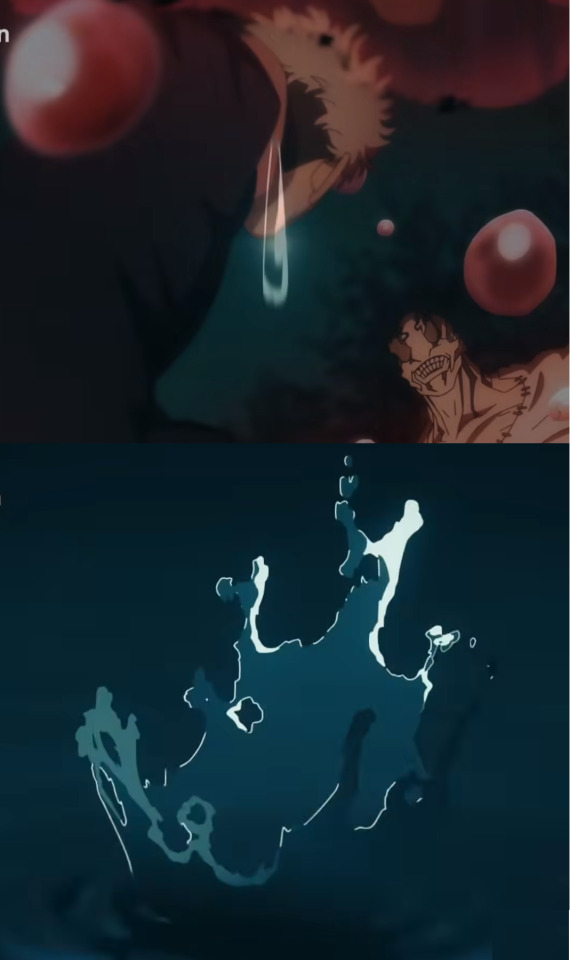
I wonder that this drop falls in Sukuna's domain, isn't it?

Sukuna began "giving" his "strength" to others in battles, seeing it as his version of "love"—an act of victory, where he acts as the judge of the battle, where the weak (Sukuna)are destroyed. And he decided to abandon the concept of love, considering it a dependency meant only for the weak and meaningless (now he's above "love" ,he is not a child, a parallel with Yuji and his treatment of him is disdainful-he recognizes himself in him)for the strong.
So he refrains from using his name because he sees himself (specifically, his past self as a child) in him - and despises himself.
Sukuna regarded strength as the sole indicator of success, and it became his driving force, but, like fuel, it only fed his inner hunger, the desire for self-destruction, rather than self?-love. He replaced strength with a sense of his former insignificance. Even being the most powerful, he couldn't stop and didn't find satisfaction, destroying himself, killing his "self" in the process, which ultimately led him to emptiness. - But the fact is that this emptiness is not of a Buddhist nature, not grounding, but self-eating
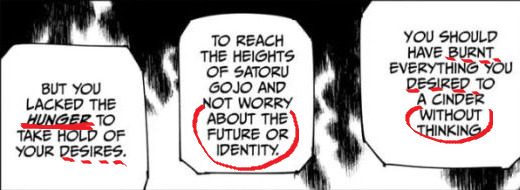

In the depths of Yuji, there is something that I am sure will turn out to be his hidden power : the ability to transform internal negative emotions into a manifestation of faith in goodness. He will not just suppress these emotions but actively engage in a struggle with them. Yuji uses hatred as a sort of weapon against hatred itself—like fighting fire with fire. He will begin to see "more than he" the idea of hatred as an inner enemy present in each of us, reflected in his own personality, in Sukuna, and in the personalities of those around him.
And thus, Yuji will strive to separate (Cut like Sukuna) his opponents from their "evil" and direct his energy only towards this "evil," which is the opposite of a Sukuna's self-hatred power ,Yuji can be viewed as a mirror reflecting Sukuna's twisted power of love.
Speculation below
The absence of parental love can create a profound void in childhood, leading to a deficiency in emotional support which, in turn, contributes to negative self-perception and attitudes toward oneself and the world. This deficiency often manifests as low self-esteem, self-hatred, and behavioral issues such as aggression or depression. Jacques Lacan's concept of the "mirror" provides insight into how parental relationships sculpt a child's self-perception and psychological development.
It is intriguing to observe how Yuji and Sukuna mirror each other's behaviors.
Identification and emulation: Individuals who lack parental figures may seek to emulate others who resonate with them or serve as role models. This behavior often stems from a desire to comprehend how to appear, feel, and act based on observed traits in others.
Search for emotional connection: People who lacked parental figures or did not receive adequate emotional connection during childhood often strive for intimate relationships with individuals who can fulfill this emotional void.
It's worth noting that characters may not fit perfectly into any one personality type due to their complexity and fantastical nature.
Yuji's identity is deeply intertwined with television. Gege's narrative underscores that he "grew up on television," suggesting that this medium became a surrogate for parental figures and filled the emotional void in his life. His enthusiasm for parodies and karaoke, venues where he could interact with others, reflects his ambiguous sense of individuality, likely influenced by television as his primary source of inspiration and behavioral model. Additionally, his emotionally reserved grandfather deprived him of necessary support during childhood. - if unfounded then Yuji INFJ -INFJs are known as chameleons, adapting to different situations. This clarifies why Yuuji excels in collaborative combat and absorbs lessons from others—he's like a sponge.
Sukuna's depiction as a petulant child reflects emotional immaturity and egocentrism commonly associated with unresolved childhood traumas or deficiencies in parental nurturing. His reactions and demeanor echo characteristics typical of children: egocentrism, emotional volatility, rebellion, and disobedience. His unpredictable behavior mirrors the emotional turbulence of a child grappling with feelings of abandonment or neglect, particularly evident in situations beyond his control or comprehension. - if unfounded then Sukuna INTJ
INFJ : "I may not always understand the intricacies of your emotions on an intellectual level, but I can feel them deeply.It might not intrigue you cold mind , but it brings warmth to your heart." Breathing life into your being."

INTJ: "Your natural stands as an enigma within my ordered world. Yet, I find myself drawn to this anomaly, stirring within me something beyond rational comprehension. This connection, however unconventional, holds a fascination that I cannot ignore."
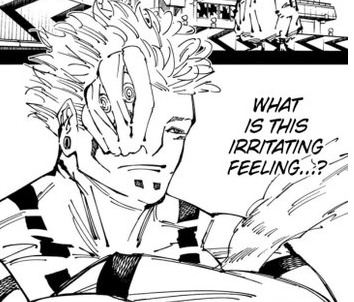
One feels the other thinks - but they are one -connection between Yuji and Sukuna, suggesting that despite their apparent differences, there is a symbiotic relationship between them. This mean that they influence each other in profound ways, with Yuji's emotional sensitivity complementing Sukuna's strategic thinking, or vice versa. It indicates that their identities are intertwined on a fundamental level, even though they may manifest differently in terms of behavior and personality.
Nevertheless, Sukuna experiences a transformative moment when he acknowledges and embraces the profound love emanating from Yuji. This revelation serves as a form of "enlightenment" or "rebirth," illuminating a path within the darkness of his existence. This is the first time Sukuna encounters unconditional love. For him, it signifies liberation from hidden motives, such as the desire to use others in his childish power games ("me versus you," "who's superior," etc.), simply to kill time. Now, he avoids manipulations he once considered normal but which Yuji interprets as a craving for attention. Yuji doesn't value "power," leading Sukuna to the paradoxical conclusion that he's unloved - the only thing he ever desired. He realizes his past actions were merely theatrics, where he played the leading role, but now, meeting Yuji, everything changes. Yuji doesn't engage in this game, refusing to succumb to the spectacle of death for emptiness' sake. This moment underscores parental resilience, selfless guidance, and dedication to the greater good.
This realization is especially poignant following Sukuna's unsuccessful attempts to break Yuji. Yuji's unwavering loyalty and resilience, directed not towards himself, exemplify a depth of love Sukuna has never encountered. Sukuna's inability to avert his gaze from Yuji, despite the accompanying anguish, underscores his inner turmoil. This revelation challenges his preconceived notions, exposes internal conflicts, and highlights emotional vacancy, reflecting the difficulty he faces in embracing newfound emotions and comprehending the true essence of love and loyalty.
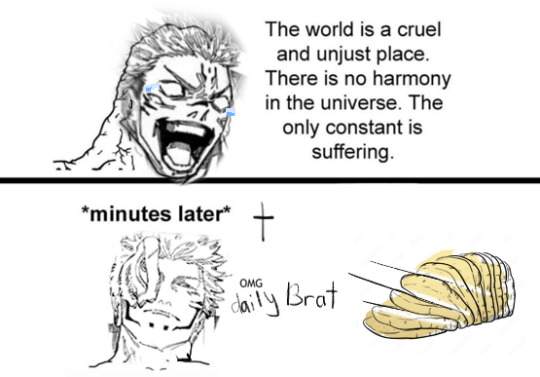
#jjk meta#ryomen sukuna#jujutsu kaisen#jujutsu kaisen theory#jujutsu kaisen analysis#jjk#jujutsu kaisne spoiler#yuji itadori#jjk manga#manga#anime#jjk spoiler#jjk analysis#jjk 255#jjk 256#sukuita
116 notes
·
View notes
Text
in honour of geto's birthday, i want to talk about the fandom discourse that paints him as a mother. he definitely has a degree in motherology (with a minor in babygirlism), but i also think it’s possible that gege is genuinely using his character to say something interesting about motherhood and maternity.
this post is inspired largely in part by @virgobingo's thoughtful meta on geto and monstrous femininity, which you can find here. i want to extrapolate from the trope of monstrous femininity and extend it to monstrous motherhood. (which @virgobingo also touches on; you should really check out their meta— it's awesome!)
geto's character is immediately established in a protector capacity, which is intensely reminiscent of the tropes that mothers embody in media. his whole thing is that the strong must protect the weak; it's his core belief. his character is premised around this belief, much like the way mothers' constitutions in media are premised on the principle that they'll go to any length for their children.
we're repeatedly shown his caring side during hidden inventory— he cares for riko, he expresses concern for gojo, he even asks about kuroi after he finds out toji supposedly murdered his best friend. it's made very clear that he's an outwardly caring person with a strong sense of duty. in this way, he parallels the textual role of mothers, whose function is to care and provide above all else. the repeated emphasis on his caring nature is what directly likens him to maternity, whose characteristic trait is tender love and care.
he also houses curses in his body. he unleashes them from inside of him, almost like children leaving the womb. these curses obey him and operate according to his will in a very parent/child dynamic. they are powerful, but they can only do what he tells them to do. he uses them to fulfil his duty according to his core belief: to protect the weak.
when he defects, his ideology fundamentally does not change— it just inverts. instead of the strong protecting the weak (the weak necessitating their strength because they can't protect themselves), now the strong must be protected from the weak (because the weak leech the strength from the strong, therefore rendering them weak).
nothing really changes; he still cares —fiercely— it's just in the opposite direction. he takes the tropes associated with motherhood and inverts them— he'll do anything to protect those under his care, including killing, because he wholeheartedly believes in fulfilling his duty as a protector (like a mother). his unwavering conviction and willingness to die for his beliefs (which are directly about those he's protecting) is the most flagrantly maternal thing about him.
toji's worm calls him "mommy" and it's not wrong. he takes in daughters and becomes the central figure of his "family"; his emphasis on family throughout the story (even as a youth) also speaks to his maternity, as mothers are often written as the binding emotional centres of familial structures.
after he dies, his body is taken over by someone who is Iiterally a mother. he embodies monstrous motherhood during life and after death, leading us to the question of what gege is trying to say about all of this. is caring too much a bad thing? does caring in one way open the door to caring in another? what happens when a mother's love, supposedly strong enough to lift fallen trees off their children, goes in the “wrong” direction?
there's also the fact that geto is male. i think gege is also asking us to reckon with how the tropes of maternity have been confined to women, showing us that these intense convictions and the depth of care attributed to mothers can apply to anyone, even (especially) if they are distinctly masculine. in doing this, he's also expanding the conceptual definition of motherhood, suggesting that mothers can exist beyond their provident care and one-dimensional duty to their beloveds.
geto's monstrous motherhood is an explosive reclamation of agency in a trope where women have been historically limited by the categorical imposition of maternity. it seeks to disrupt not only who we consider to be mothers but also what we consider a mother to be. perhaps the monster is not the maternal figure whose love turns vicious or violent, but us, who monstrously imprisoned them in the fixed role of "mother".
#happy birthday geto suguru#my jjk meta#jjk meta#jjk#jujutsu kaisen#jujutsu kaisen meta#jujutsu kaisen analysis#geto suguru#geto#suguru#jjk geto#geto my beloved#jujutsu kaisen theory#jujutsu kaisen anime#geto analysis#geto meta#jujutsu kaisen suguru#jjk suguru#getou suguru#gege akutami#jujutsu kaisen season 2#jujutsu geto#夏油傑生誕祭2024#geto angst#miminana#kenjaku#jjk anime#jjk thoughts#jujutsu kaisen thoughts#jjk analysis
93 notes
·
View notes
Text
the anti-climatic end of Gojo's character arc
(manga spoilers!!!)
(what I say here is unrelated to the fact that I am a major Gojo death denier lmao, i’m saying this considering story and character arc)
It was very obvious to me that Gojo would lose the fight with Sukuna. if he won, it would make no sense for the story and the actual protagonist. Everyone kept saying how 'if Gojo was here, there would be no problem' and how Gojo would win, etc.
But I think Gojo dying would be a waste of a character and an anti-climatic way to end his story. While he may not be a protagonist of JJK, there is still a lot about Gojo’s character and his story in the manga, so ending it like that, cut in half in a fight with Sukuna, is just boring to me.
It would have been much more interesting for his character and his growth if he somehow got brought back (Shoko, I’m counting on you), but lost his power.
Gojo was born with powers of a god and he knew it from the beginning. The balance of the world has been changed when he was born, and all that stuff that suggests he was born to be the strongest.
It’s been hinted a few times how much this strength isolated him from others. He considers Geto his ‘one and only friend ever’, because Gojo recognized Geto as someone equally powerful. Also, at the same time, Geto recognized him as his best friend and not only ‘the strongest’.
There’s also the fact that he became a teacher to create a generation of jujutsu sorcerers who could not only be on his level, but also surpass him, and in that way he wouldn’t feel so lonely anymore.
But if that was all, Gojo surviving and losing powers wouldn’t be a challenge at all.
Besides the loneliness he experiences due to his immense power, loneliness that bothers him, Gojo is also obsessed with the feeling of being the strongest. You can see in it the Hidden Inventory arc, in his second fight against Toji Fushiguro. On the brink of death, he taught himself the Reversed Cursed Technique and survived. In the same scene he mentions how he doesn’t feel mad at anyone or sad, because reaching this new state, expanding what he can do with his powers, feels so right.
It’s like what Geto said - are you the strongest because you’re Satoru Gojo, or are you him because you’re the strongest? The godly strength and powers identify Gojo and at the same time make him feel lonely.
He doesn’t want to feel lonely, so instead of thinking about dimming his powers, he thinks about making his students stronger.
I think Gojo surviving but losing his powers (for example, let’s say it’d be the cost of bringing him back to life) would give him what he desires, would make him just another sorcerer (with minimal/average power) or a regular human being, and therefore he wouldn’t feel so ostracized, but at the same time he’d have to learn who he is as a person without the thing that defied the name Satoru Gojo since the moment he was born.
#jujutsu kaisen#jjk#jujutsu kaisen theory#jujutsu gojo#jjk manga#jjk gojo#gege when i catch you gege#gojo satoru#jjk spoilers#jujutsu kaisen spoilers#gojo#satorugojo#jjk satoru
100 notes
·
View notes
Text
"When the day turns into night
And you’re way beyond my sight,
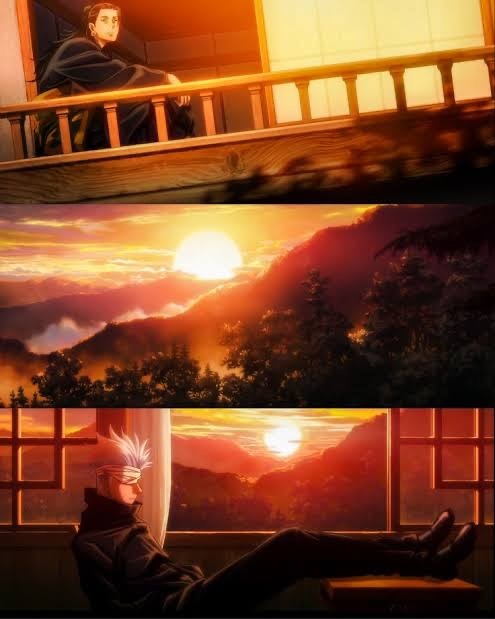
I’ll think of you, I’ll think of you.
When the night turns into day
And you still are far away,
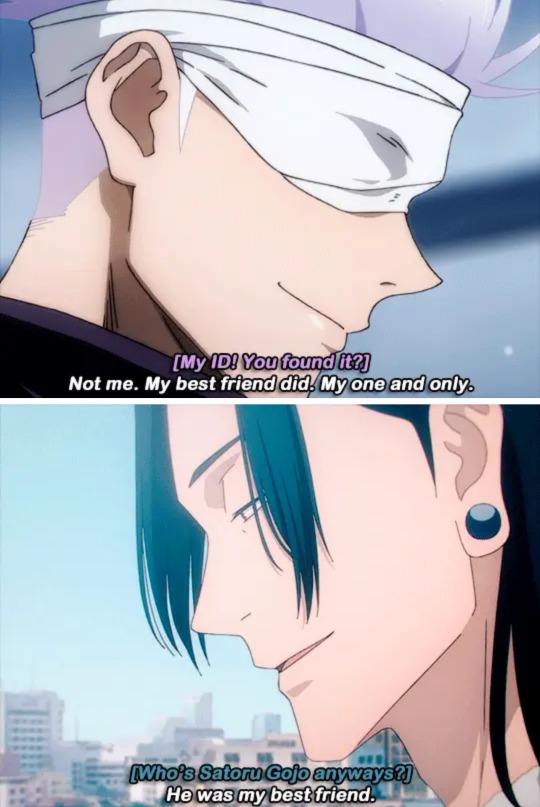
I’ll think of you, I’ll think of you.
Even when I am not here
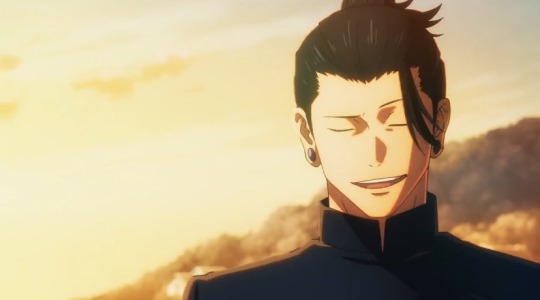
We still can be so very near

I want you to know my dear
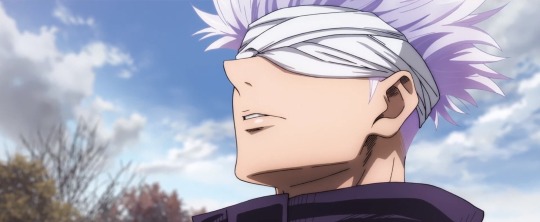
I’ll think of you."
Source: Facebook & misterrogers.org/videos/when-the-day-turns-into-night
And think of each other throughout their short lives they did.
Headcannon, analysis and theorising - more under the cut:
I’ll preface with how I’m aware there is some reaching and rambling, but there are so many interesting parallels and foreshadowing in Gege’s work that I’ll be at risk of writing my own “war and peace” with my theories and headcannon. I might be wrong as always, but I hope it makes for an interesting read even if you don’t agree! Comments and reblogs welcome!
I’ve pondered on this theme of lateness. I have another draft post on this topic, but in this scenario it illustrates the impact of riko’s death and their defeat (eventual victory for Gojo) to Toji.
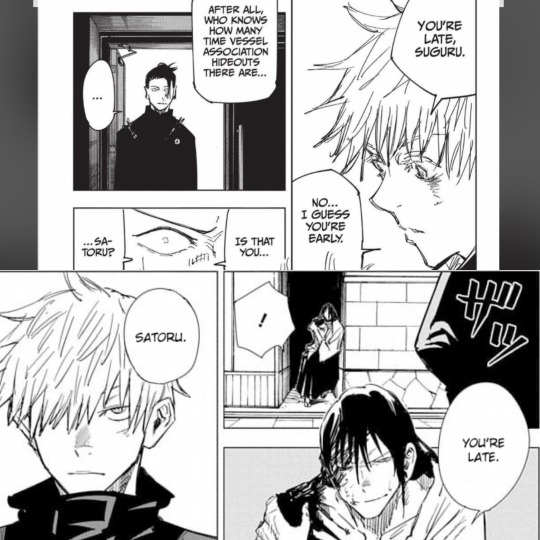
One ascended and the other descended. Arguably one saved the other, and equally debatably, they exchanged paths. However else you wish to explain it, Gojo deferred to Geto who was his moral compass, and was guided back to a sensible path. Geto did not wish to be saved by the time Gojo intervened, but ultimately was saved from himself before he could get too twisted.
Or, was it ultimately still a tale where Gojo was indeed too late, and despite everything he had, he could do nothing?
Nevertheless, their first defeat left them both scarred and changed.
Losing each other was something they never got over - Gojo and Geto had wounds shaped like each other.
One went off to find strength to change the world; the other went off to foster students to change the world. They pursued each other’s forte to make up for the sense of loss from their separation - trying to find completion within themselves and their world around them, but falling short of healing their emotions wounds - until they could meet the other once again to resolve their relational rupture.
Look at these two paralleling each other... papa Geto and Gojo sensei.
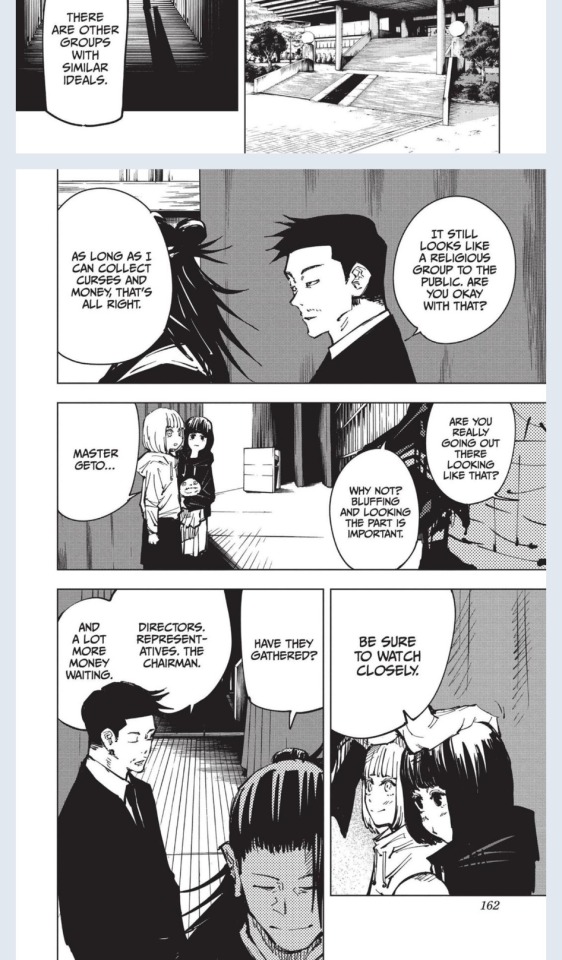
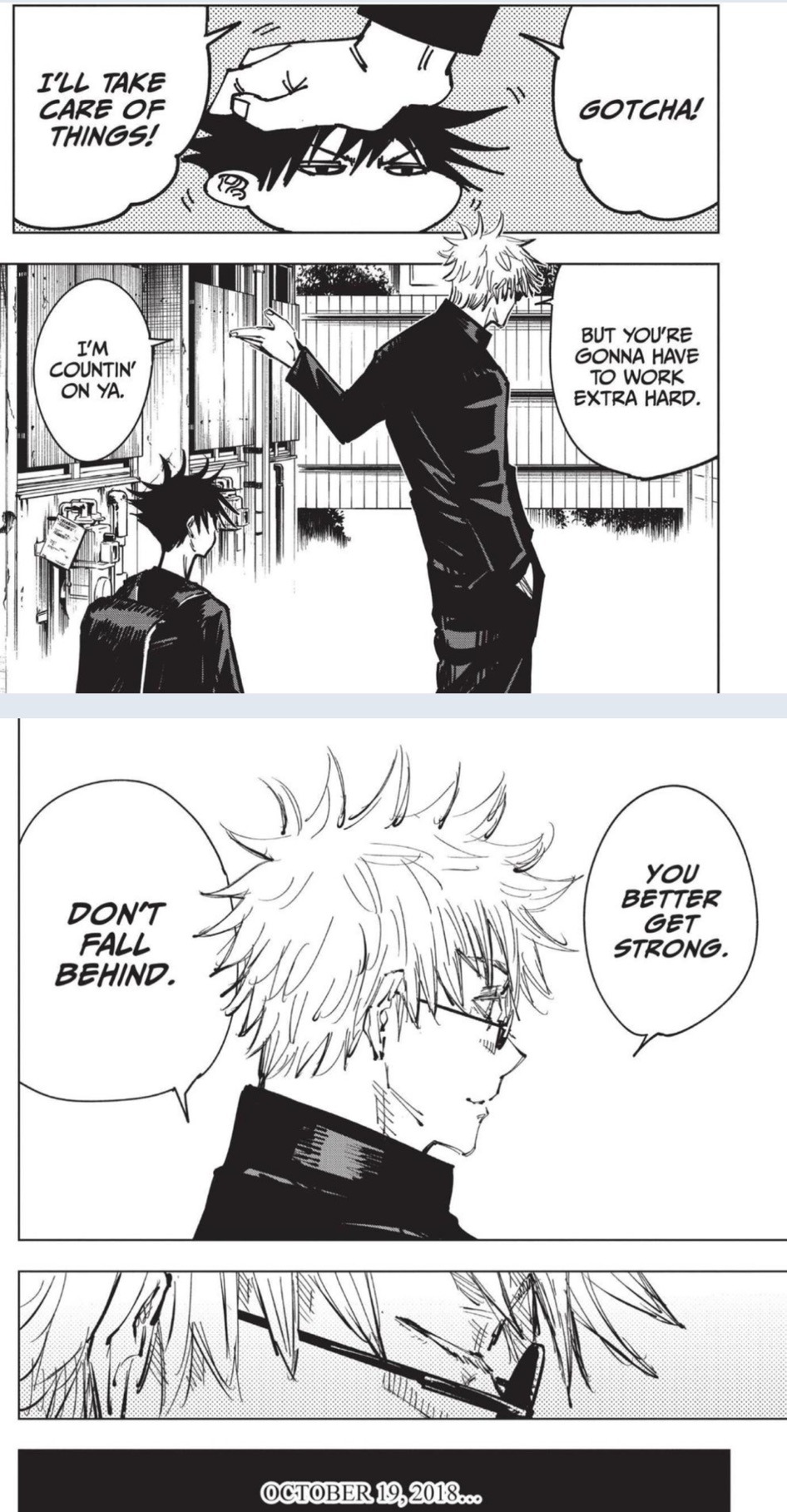
Let me start with Geto:
In this world, Geto admitted before his death that he could never smile from the bottom of his heart.
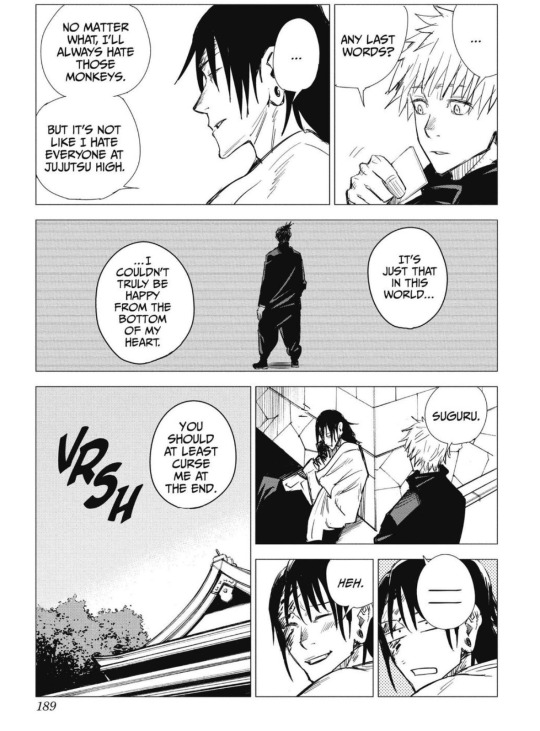
No matter how many people loved him, how much they were willing to dedicate to him by following and trusting him, Geto didn’t feel happy. We see, so touchingly, how much he was loved by his family - Mimiko, Nanako, Miguel, Larue.
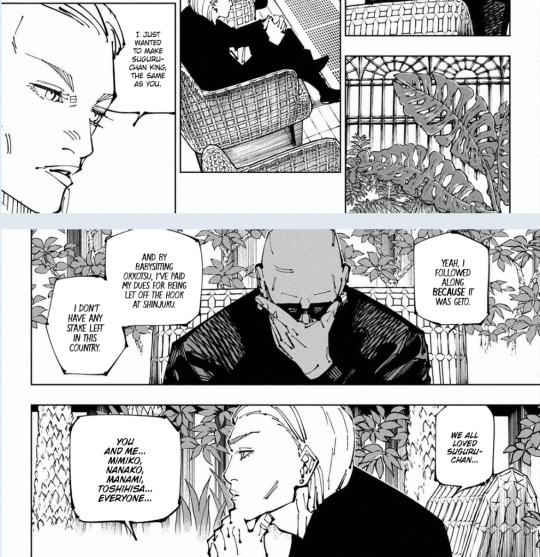
Did he ever feel loved? He certainly felt protective over them, but did he feel he mattered, besides being the one who gave them a vision?
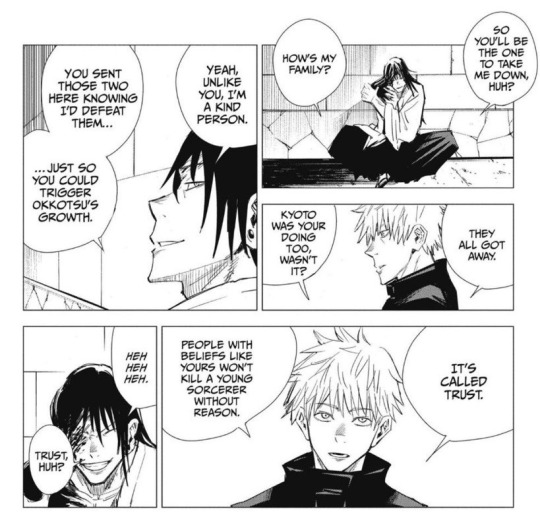
It doesn’t seem so. Geto seemed to think little of himself, for someone prideful and egotistical (by his own definition). He lost a sense of security in himself and value following Gojo’s distancing of himself too. Untethered, he probably felt like he was free falling.
I theorise that his desire for a better world was born out of a desire for redemption, and it was a curse to avenge the loss of his youth as well as those who had died under his care - Riko, “Gojo” (pre-enlightenment), and Haibara. Geto had lost himself within a spiral of depression and self-affirmation following the Toji incident.
I sense that his search for meaning and purpose through the protection of others was always an act of self-sacrifice that was exhausting and defeating for him. Just like the consumption of curses. Like a futile attempt at regaining control when he was slowly losing it even more - getting further and further away from what he really needed - to heal from his emotional wounds.
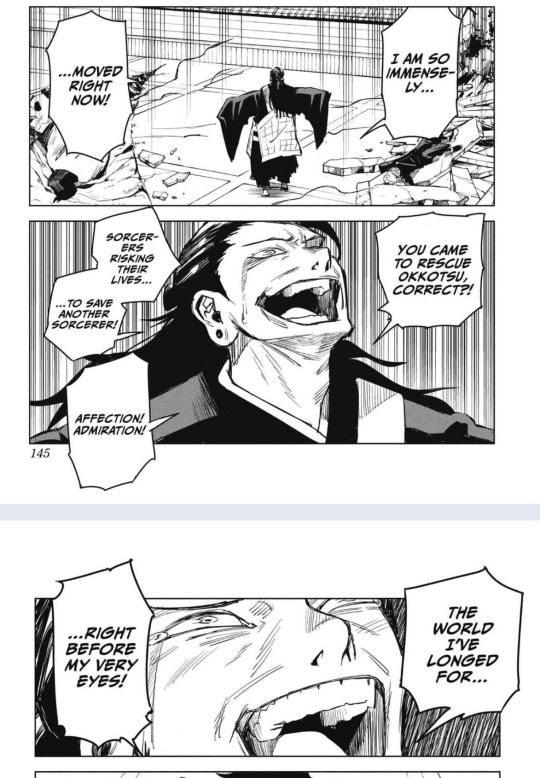
What he needed to resolve was learning that he was loved within the world; that he had a place and belonging there. It didn’t have to be about him being a protector or making a difference. When he was feeling balanced from within (secure), existing in harmony could become possible. The rest could then fall into place.
But how could Geto have faith in the universe, after the system fails them all, his best friend now finds meaning in acting alone (being protective in his own way), he learns that riko’s death/sacrifice was inconsequential, and that his fellow peers would just keep dying if he continued powerlessly chugging on. He began to believe he can only rely on himself in a world separate from jujutsu high.
The only time he can remember feeling safe or having equilibrium was in his youth beside his best friend, Gojo. The primary source of his wound was losing Gojo and the disillusionment of their defeat was not repairable.
For Geto, despite chasing his goals to the best of his ability, he could not smile authentically for all these years. The world that was presented to him felt cruel; like a curse stuck on vengeance and justice, he kept burying himself with lies that he used to avoid facing the inevitable truth that this could only end in one way. It began and will end with Gojo.
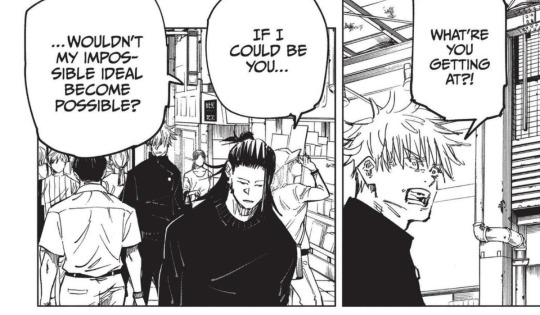
He could not replace what Gojo was to him, and the strength he may have envied to fulfil his goal, was a constant reminder of what he had lost - the trust and understanding of someone. His vision of clarity had become costly and darkened as time passed. To gain more power meant he’d become increasingly twisted. Knowing he was on borrowed time, that what he was doing was wrong, that it could only end one way - to Gojo’s hand.
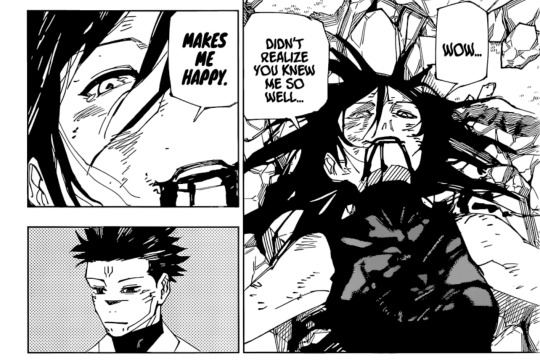
Did Geto, like Yorozu, need to be seen too? Was this the validation he found / sought - to be witnessed? I honestly don’t know, but whatever Gojo and Geto shared, it was more reciprocal than Sukuna and Yorozu. I do wish Geto was more honest with Gojo, but I think it was enough in itself to yield completely to Gojo and accept his end.
Geto had a Gojo-shaped wound that Gojo mercifully filled upon his last moments - showing him unconditional love and regard despite the changes between them.
We are kept out of the last words Gojo delivered, but we see that: He was recognised by the one who had truly mattered to him the most - the one whom he loved, and thought he had lost. He smiled sincerely at the very end.
Geto was shown to shed not one but two tears in Gojo’s afterlife scene. How moved must he have been to receive the regard and love from his best friend? Despite the lack of honest insight from Geto (Gege, you’re so stingy with inner narratives), it seems rather clear that there is something there that only Gojo can ease for him.
As for Gojo:
In his death dream / afterlife scene, Gojo was shown to express to Geto: If you were there, I probably would’ve been satisfied. It was received as loving, as Geto shed tears to this, and we know Gojo deflects from emotions by abruptly changing topics when he gets a bit heavy.
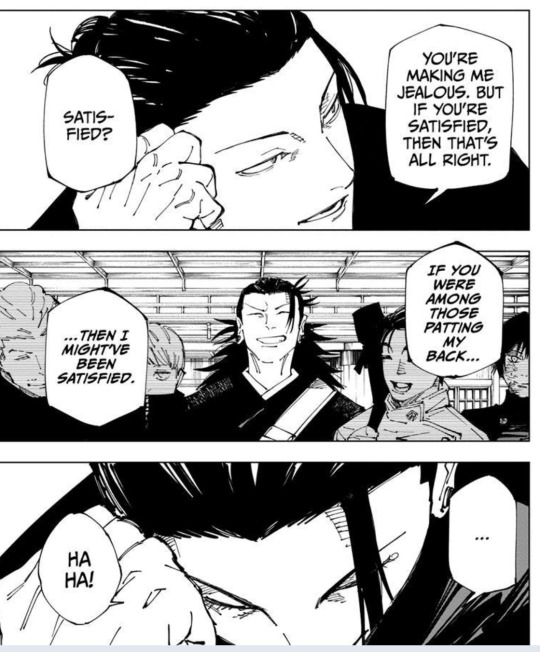
Gojo also describes how, no matter how many people adored him, he felt a distance between them; although he didn’t feel lonely, he could not feel understood in all these years as the strongest.
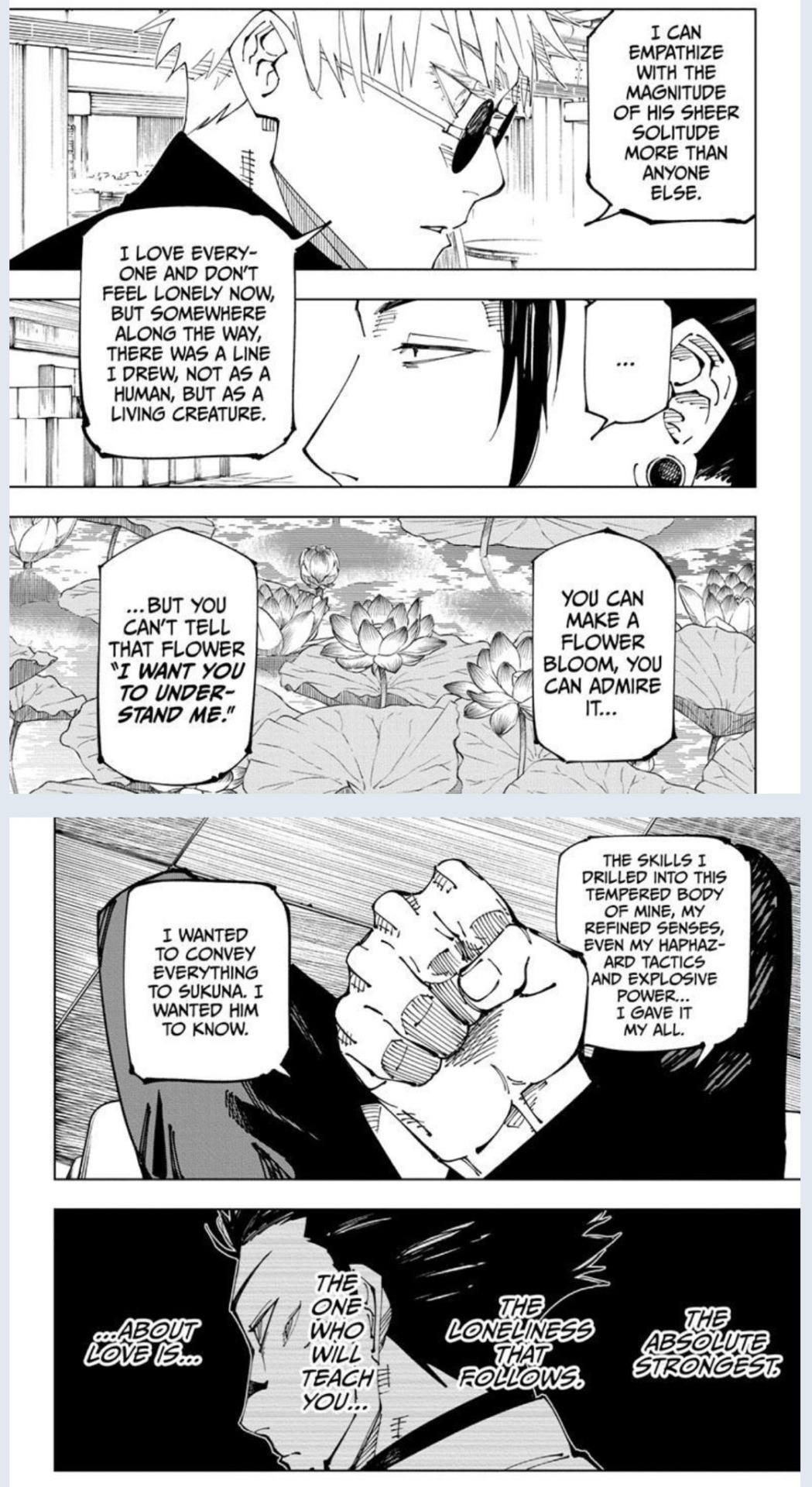
The line was drawn even more following his enlightenment, and his only memory of connection was with Geto, who had modelled a way for him to connect with those weaker than him and not see them like feeble dirt beneath his feet (as Hajime did) or pursue power like Sukuna did without caring about “worthless” love.
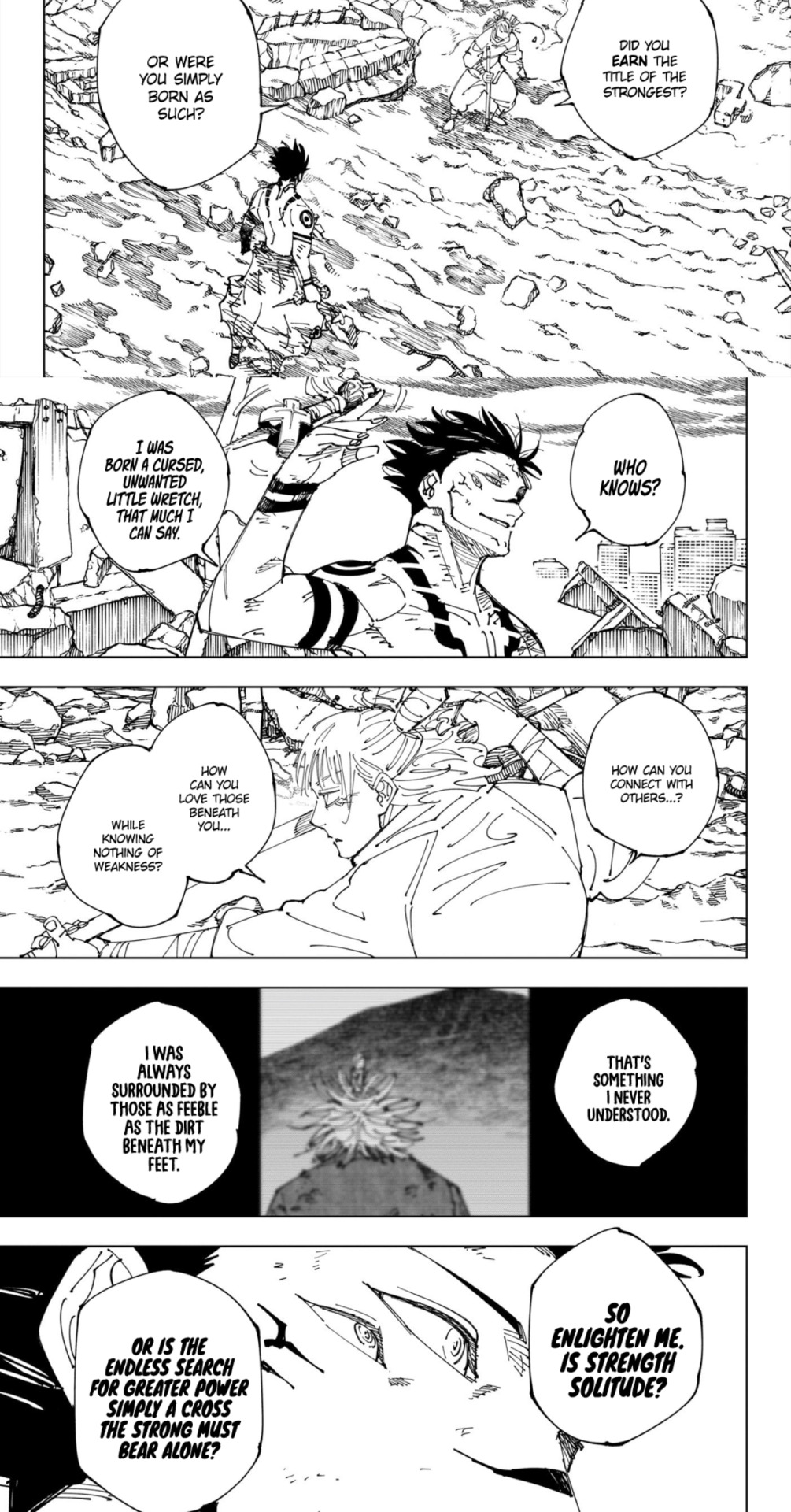

His main reason for being a teacher was also Geto. I headcannon/theorise that it wouldn’t have been the first time Gojo missed him, imagined “what would Geto do?” or saw Geto in his students in those 10+ years. What could he do differently?
Through the impact of Geto’s loss and the power of their love within their friendship, Gojo was compelled to think about others - whether he wished to prevent it from happening again, to reform the jujutsu world, to make room for Geto to potentially return (pre-jjk 0), or to simply understand his students... Gojo stretched himself to carry the emotional and mental load that was almost exclusively Geto’s role in their friendship.
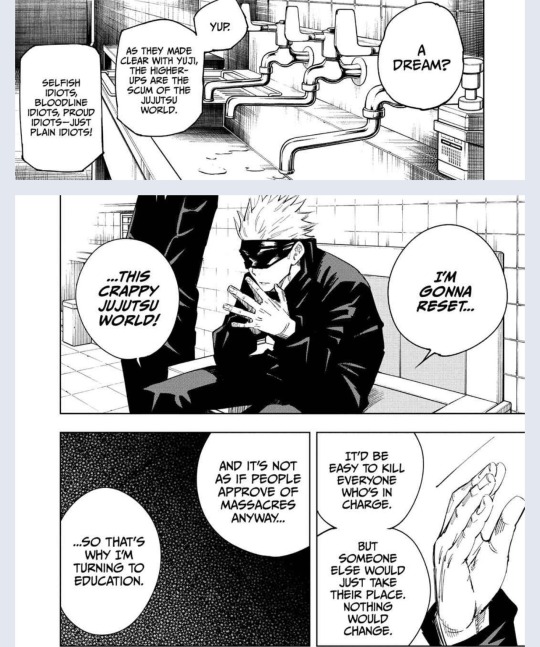
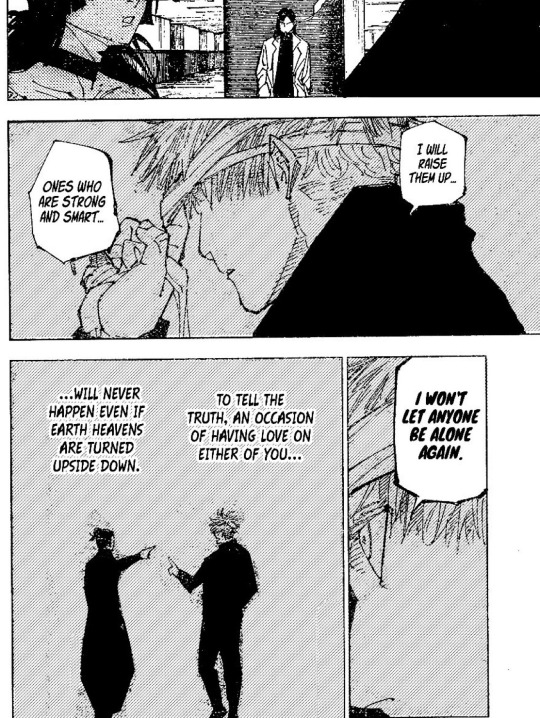
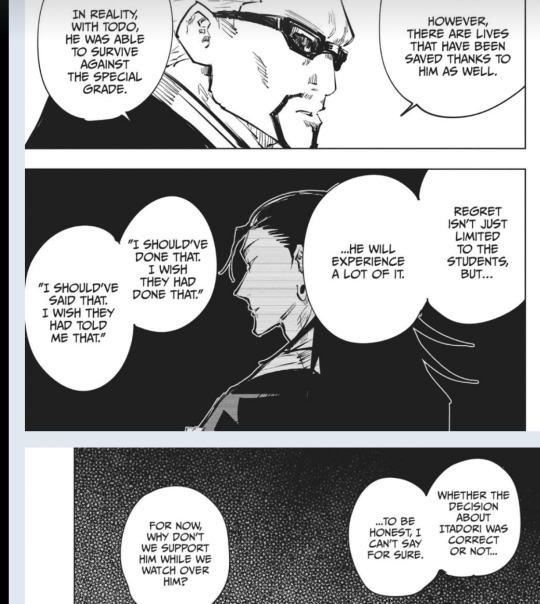
Gojo was never the most nurturing type, but he did his very best - to advise, demonstrate, and protect the youth of these students. Giving them their own blue spring was also an ode to what he shared with Geto. Despite healing a lot and making room for others, Gojo had a Geto-shaped would that only Geto could fill.
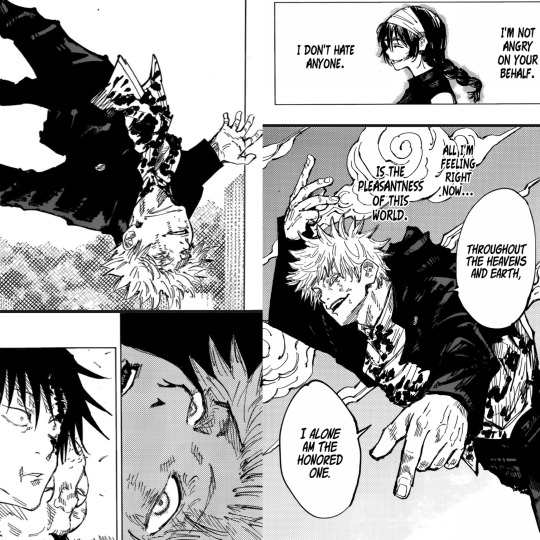
What Gojo needed to resolve was to learn to love others - even moreso following his enlightenment in the manner in which he did after Toji - that he did not have to be isolated and alone, that true connection (love) exists and was worthwhile.
Meaning and purpose beyond “just getting kicks” out of being the strongest or wielding his skills beyond self-fulfilment - were all possible - but Gojo only had a limited canvas to work from - it was mostly Geto’s palette that he expanded upon. That he didn’t want to repeat whatever mistakes either of them made if possible.
His main forte was being a skilled sorcerer. This was his primary focus still, because this was just in his nature. Gojo was practically bestowed with the assets for this role. Nobody can blame him for being greedy and coveting more (love/connection he once knew) or attempting more (influencing a new generation). Gojo was meant to be human with all his flaws and thankfully, he kept his humanity.
He ultimately tried to reach and connect to Sukuna - a potential peer whom he could “converse” with, but they were too different. He fulfilled a need to showcase his skill and philosophy to his students - alongside his own personal desire to “go all out” and die gloriously-victorious through giving it his all.
He found the connection he needed right upon his death; meeting Geto and his friends without the need for an encounter at death’s door with Sukuna - unlike Jogo and Hajime who spent their last moments with Sukuna in a dialogue. Gojo didn’t need to talk with Sukuna. They could not understand each other; not when Sukuna did not know real love - even Yorozu did not think so.
To know love is to long for it enough to recognise it.
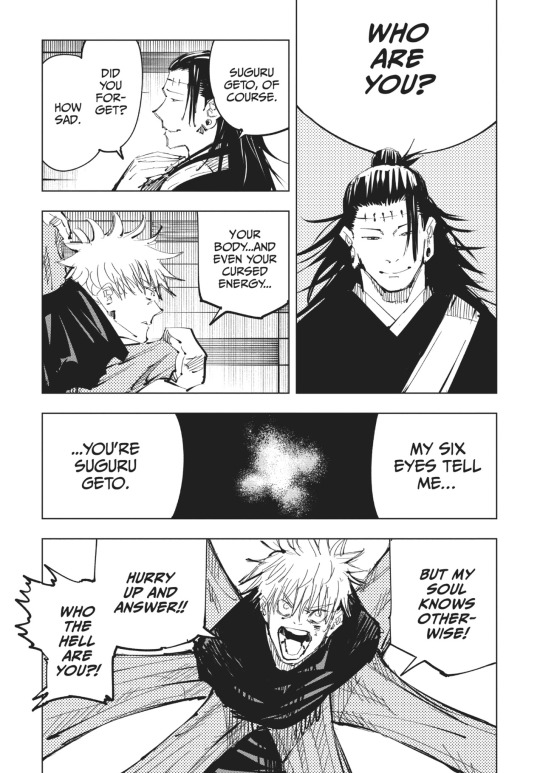
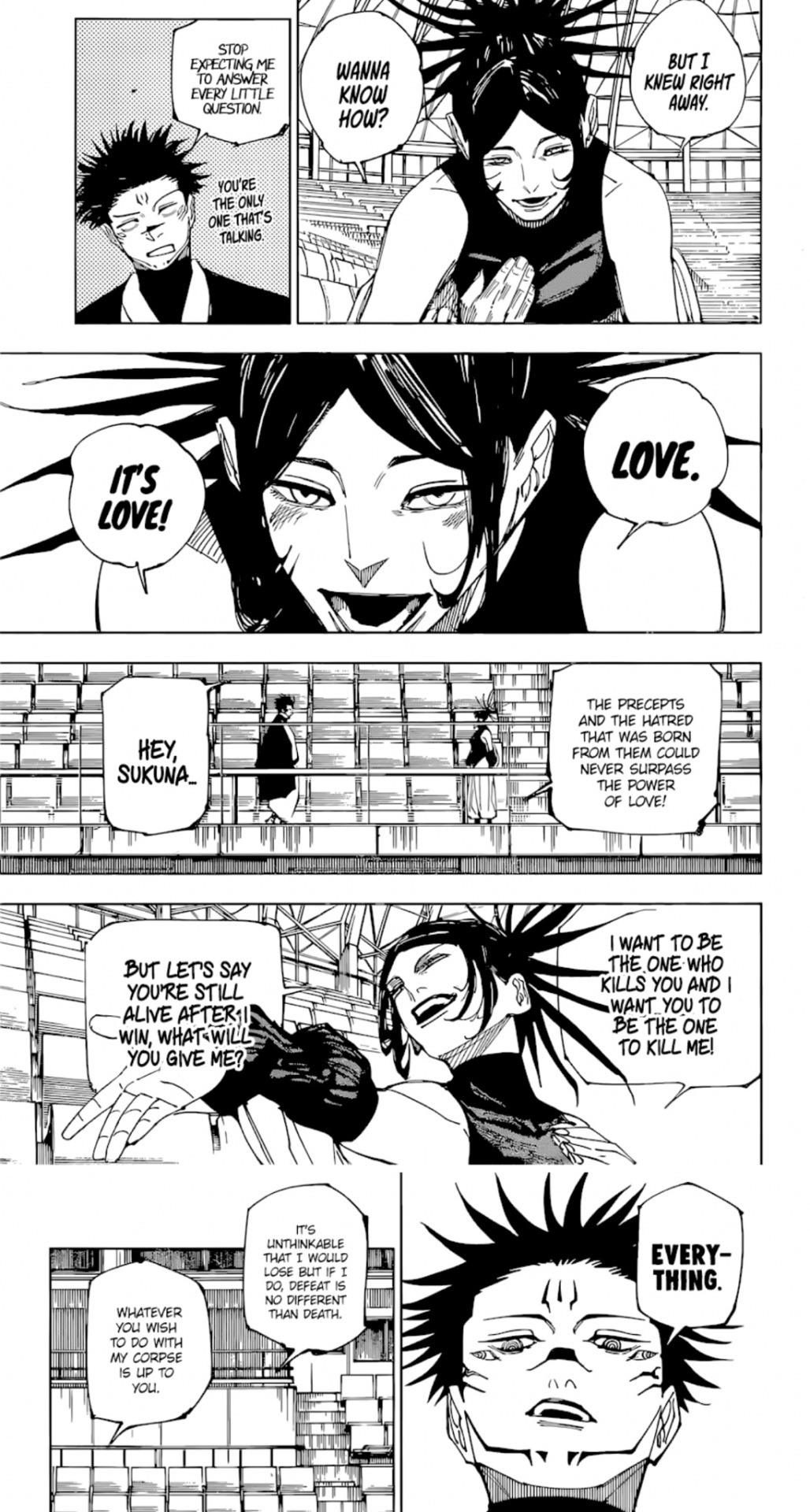
Since Gojo could not share with Sukuna what he wanted to teach (about love) he was able to tell and share it with the only person he knew who could understand - Geto. Even if Nanami and Haibara didn’t, Geto did.

It’s enough for them, isn’t it?
And it’s enough for us to know their legacy continues. It is so heartwarming to see Gojo’s students and members of Geto’s family being there too - all fighting for their own reasons - to defend and / or in honour of their memory.
#satosugu#stsg#jujutsu kaisen#gojo satoru#jjk analysis#jjk meta#jjk spoilers#jjk#geto suguru#jujutsu kaisen headcanons#jujutsu kaisen meta#jujutsu kaisen analysis#jujutsu kaisen theory#satoru suguru#goge gego#jujutsu kaisen theories#jujutsu kaisen manga#jujutsu kaisen anime#satosugu brainrot#jjk theory#satosugu headcanon#jujutsu kaisen headcannon#jjk headcanons#gojo satoru analysis#geto suguru analysis#satosugu angst#jjk stsg#stsg angst#jjk character analysis#satosugu analysis
50 notes
·
View notes
Text

What if Nobara...👁️👁️✨
JJK manga theory
#jjk manga#jjk spoilers#jjk art#jjk fanart#jujutsu kaisen fanart#nobara#nobara fanart#jujutsu nobara#jjk nobara#nobara kugisaki#jujutsu kaisen nobara#jujutsu kaisen theory#jjk theory#six eyes
23 notes
·
View notes
Text
Sukuna's Death or Immortality? (Theory)
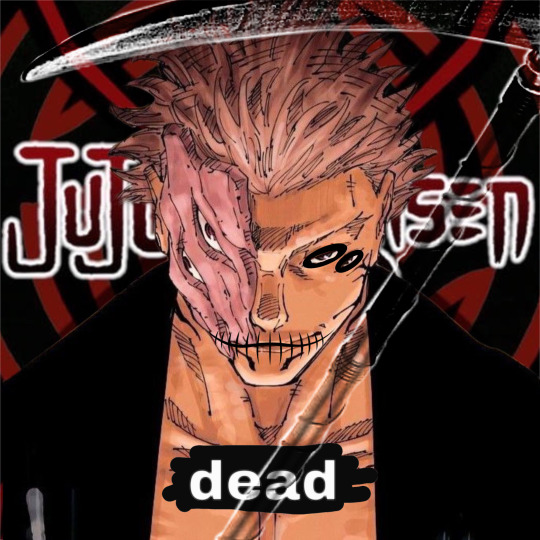
I don't think Sukuna will die so easily. They say he's so strong, almost immortal. No one could take him down back then; the other sorcerers tried to fight Sukuna together, but in the end, they failed. Maybe history will repeat itself?
And even if Sukuna loses eventually, he'll probably continue to live on for thousands more years or so because, I mean, the guy's not really human; demons can't really die. Sukuna was supposedly defeated once before, but he still lived on until he was revived by a boy named Yuji.
And we haven't even seen Sukuna's other powers yet; the guy deliberately hides the other powers he possesses, and what about his trident staff? We haven't seen that in action either. Maybe it'll come into play soon.

#anime#anime and manga#animes#jujutsu kaisen#jujutsu sukuna#jujutsukaisen#manga#mangas#ryomen sukuna#ryomensukuna#Sukuna#jjk#jjk spoilers#jjkspoilers#jujutsukaisen Spoiler#jujutsu kaisen theory#jjk theory
21 notes
·
View notes
Text
The Other side and Fate
A #JujutsuKaisen theory on The Other side and Fate. This will be a continuation of my previous theory about the 9 levels of consciousness and particularly the 8th level (Storehouse consciousness.
In JJK , Gege makes use of a lot of ideas and words with Buddhist connotations. The Title for Chap 211 was 'Ripen', now the usage of this very term alludes to 'Ripening of Karma or Karmic seeds'. But what are Karmic seeds ? The Karmic seeds (Bijas) are said to be the impressions, Habits and tendencies accumulated throughout one's countless lifetimes. The Storehouse consciousness or Alaya is the repository where these Karmic seeds are stored. These seeds are the very basis or foundation of our personality, the deepest layer of our consciousness
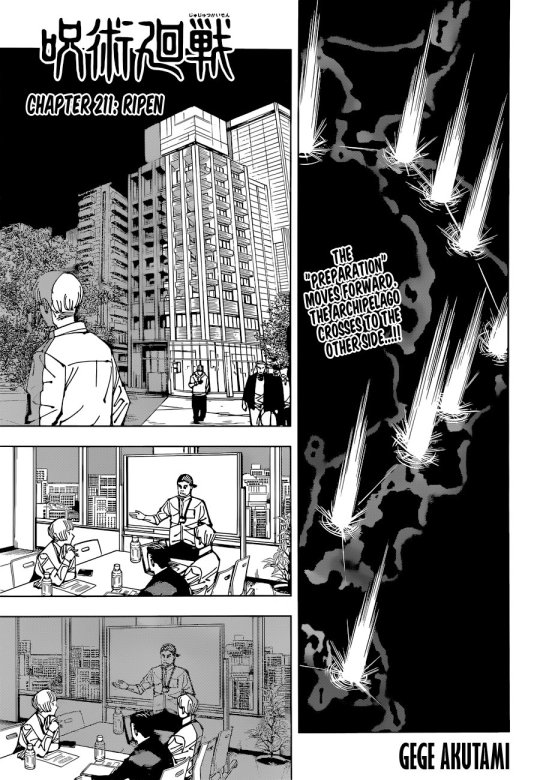
HOW our senses will perceive the world , our inherent bias all comes from the storehouse consciousness. In JJK i believe Megumi's shadow IS the storehouse consciousness, notice how Megumi can literally 'store' weapons and even himself in his shadow.
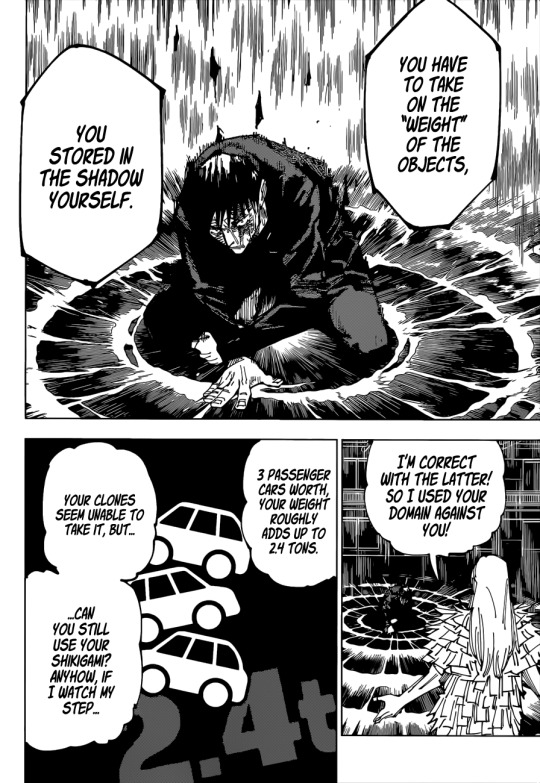

The idea of Ripening of Karma means that under the right situations and circumstances, these Karmic seeds constituting past thoughts and experiences have the potential to 'ripen' into future actions , emotions and thoughts. Even Megumi's domain name Chimera shadow 'garden' alludes to the idea of the shadows constituting the Karmic seeds
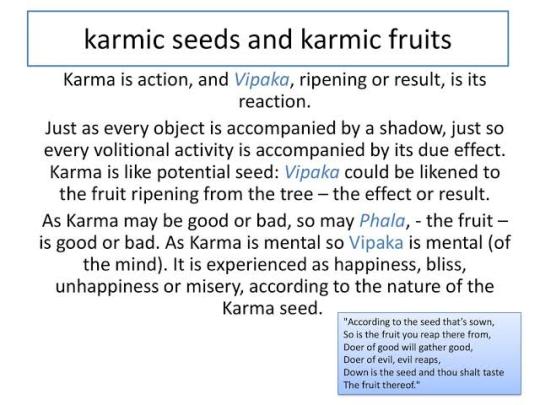
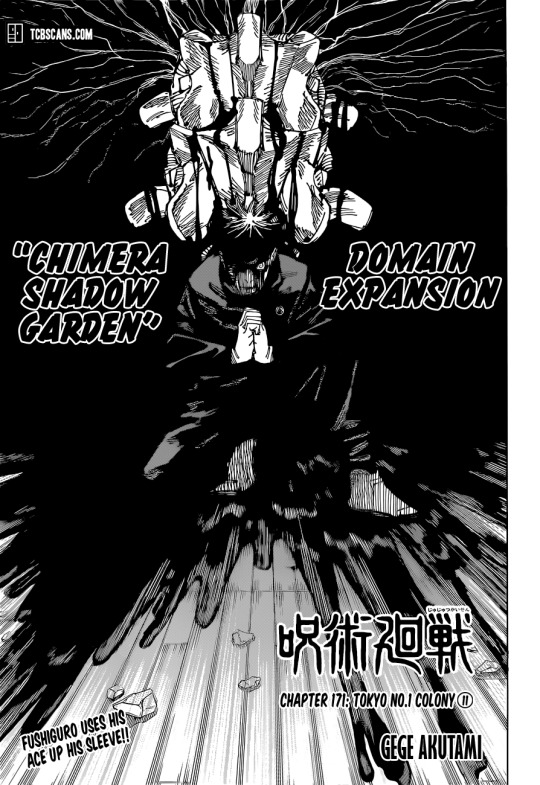
This philosophy of storehouse consciousness is analogous to the western idea of the subconscious or more accurately the 'unconscious' and in terms of depth psychology this idea of the unconscious brings us to the concept of "The Shadow". The Shadow is a part of the Model of psyche (soul) proposed by Swiss Psychiatrist Carl Jung whose works , i believe are one of Gege's primary inspirations. According to Jung the psyche is divided in 3 main parts:
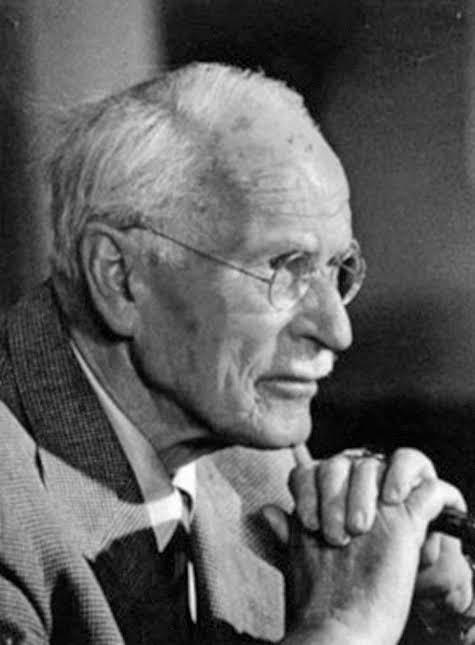
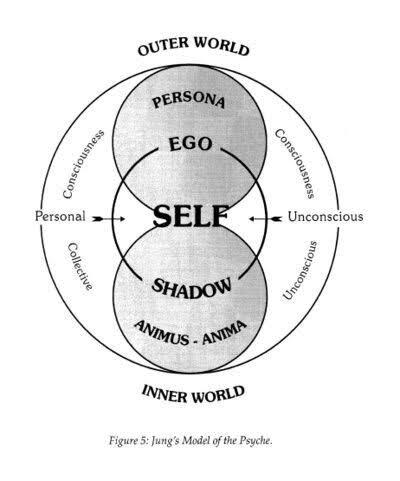
1. Persona (Ego) : It is the aspect of one's character or soul that is presented to or perceived by others or rather 'society'. The outer or assumed aspect of character, it's the mask we wear to create a bridge between our self and fulfilling societal or worldly expectations. It's the Ego we cling to.
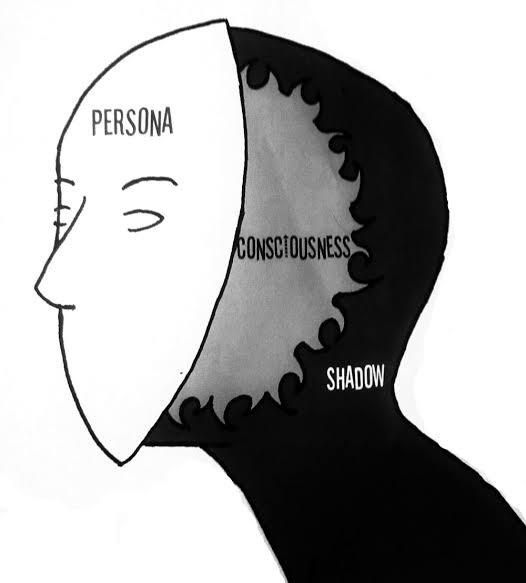
2. Personal unconscious (Shadow): The Personal Unconscious is located at the fringe of consciousness, between 2 worlds. The external or spacial world and the internal or psychic world. It refers to the information and experiences of an individual's soul that have been forgotten or repressed but continue to influence their behavior and attitudes on an unconscious level , It is also what you call the archetype of "The Shadow"
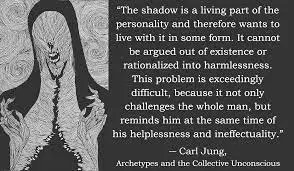
Before moving to the final part of the psyche let's look at how the persona and the shadow operate on a micro or individual level.
Every person creates an identity for themselves based around the concept of persona or ego , influenced by the information received through sensory input (First 6 levels of consciousness which i mentioned in the previous thread) and societal expectations but this is not the core of their soul, it's performative.
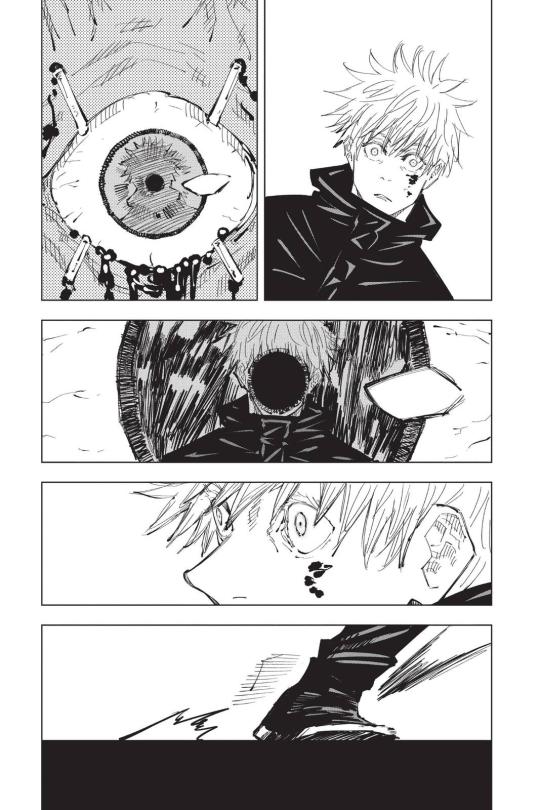
The true essence and nature of the self comes from the shadow of the karmic storehouse as mentioned above, HOW we differently perceive the same world occupied by others is caused due to the nature of our shadow but this is the part that is hidden from us, we suppress and ignore it. It's the most alive part of the soul yet is treated by an individual as if it's dead and nonexistent , this illusion of confirming with the persona and ignorance of the shadow causes a disparity within the Self
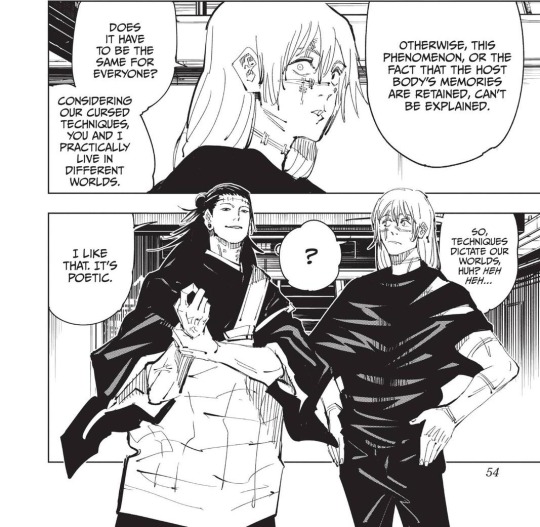
This disparity causes suffering and this very suffering is Humanity's Curse. All these traits that one considers to be negative are hidden here but we also lock away our truths which is why Jogo said "They are the Real humans" born from humanity's truth, their shadow, their karmic energy.
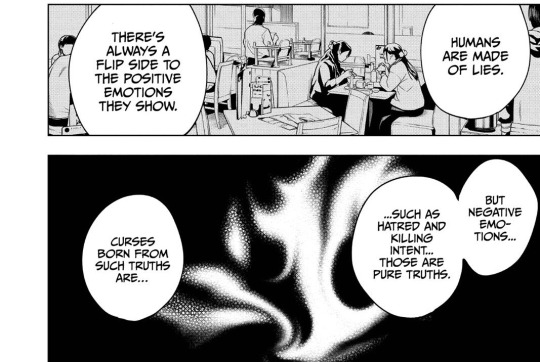
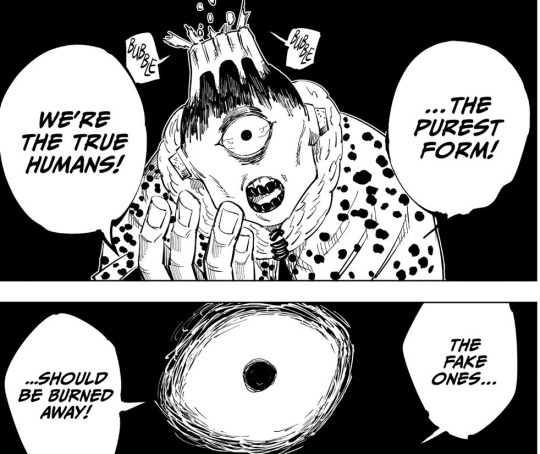
This shadow is also what Gege refers to as "The other side". The other side of our soul and that's why the motif of evolution and enlightenment is attached to it, Culling game creates the favorable conditions for humanity's karma to ripen and takes them to meet their other side, their truth.
Nirvana or the other side isn't a physical place , it's a state of mind that can be achieved right here, right now

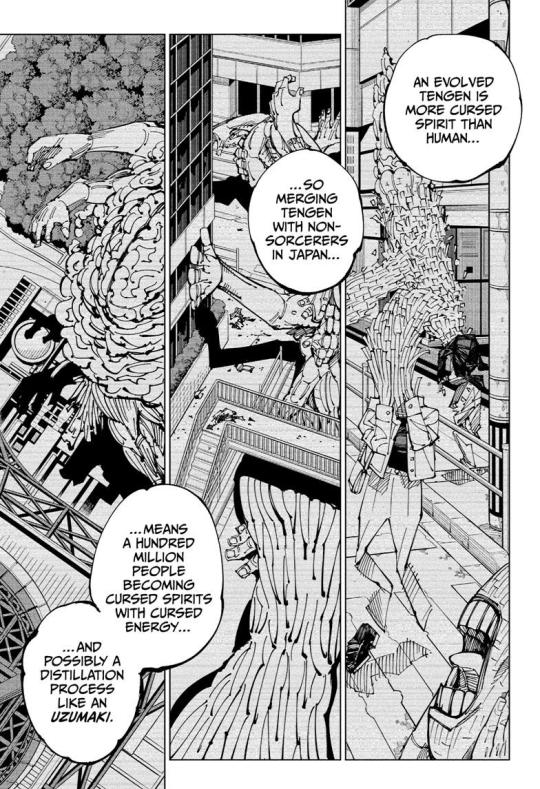
3. Collective Unconscious (Collective shadow) : the primordial grounds of unconscious from where all personality traits originate and return to , it's what I think Jogo referred to as "the wasteland". This is where archetypes are formed, where the personal shadow takes birth. This collective shadow evolves with time, constantly changing, impacting the personal shadow which impacts the Self of an individual.
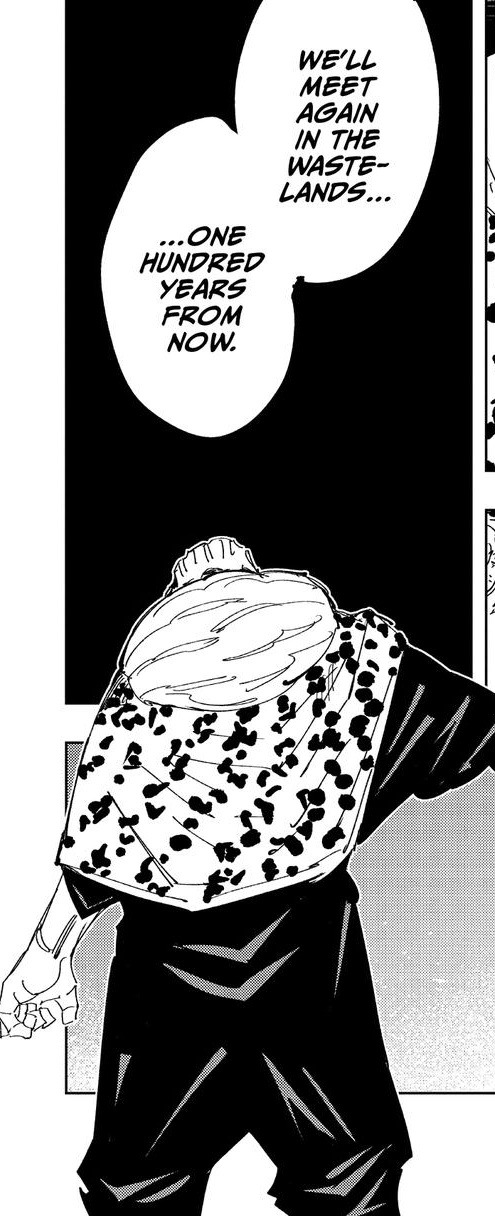
This is also the space that Kenjaku and Sasaki inhabited in chap 160. Remember this vol 23 Pv ? Look at how there seems to be a different form of existence that is active at night (the big eyes and the shadow).
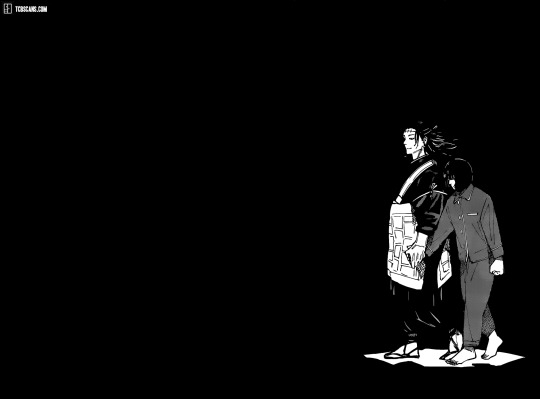
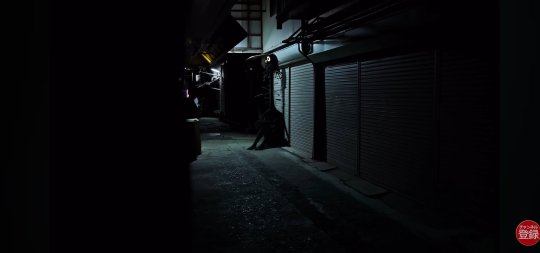
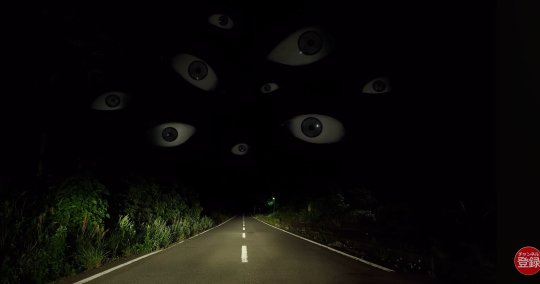
While one is asleep, the shadow self is awake. It sends messages to guide and control them through the medium of Dreams. Humanity's actions are instigated by their shadow which arises out of the collective shadow and this form of control is what JJK refers to as 'Fate'.
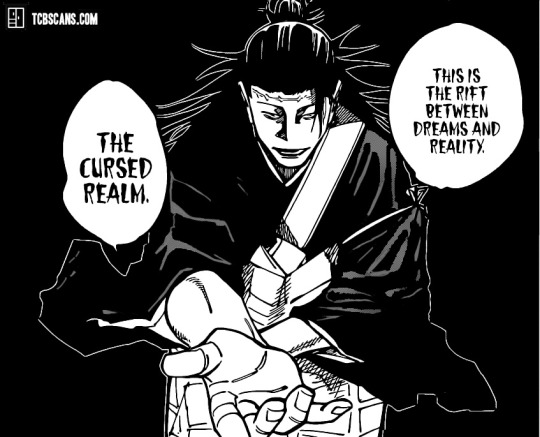
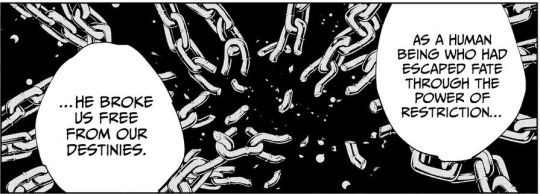
Now the inclusion of fate doesn't mean that it is supposed to predetermine every action and extinguish free will. It's a form of test and this is where the difference between fate and karma comes into play. Fate is the set of cards given to one based on their previous karma , how they choose to play with them is their present karma offering them a chance to be free of their fate ONLY if they could recognize their shadow and accept it and this acceptance is 'Love' in JJK's context.
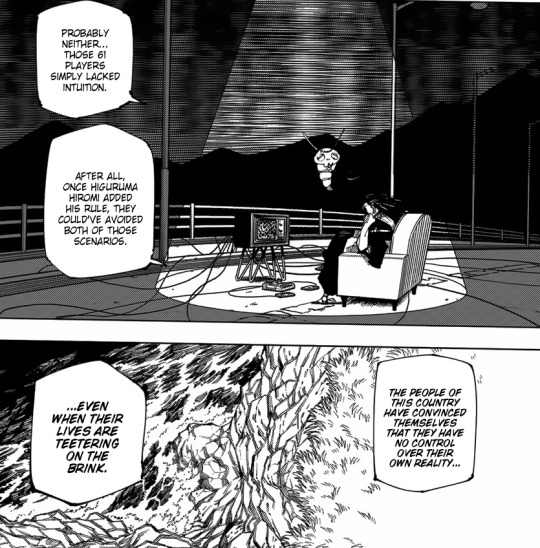
Kenjaku talking about the impermanent nature of Fate or Karma
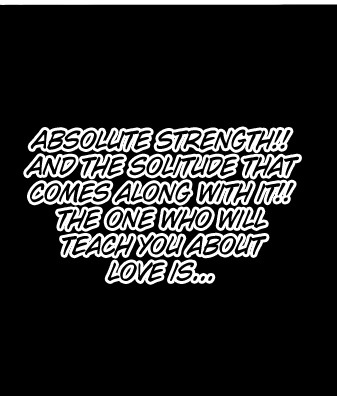
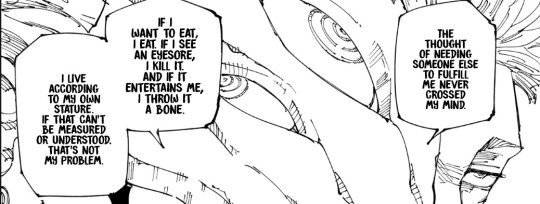
The concept of love or understanding, the love of Self
The collective shadow is ultimately the repository from where parts of the soul that humanity ignores originates, this collective shadow IS what Gege refers to as "Evil" in JJK, what Sukuna wanted to get close to through "The Bath".
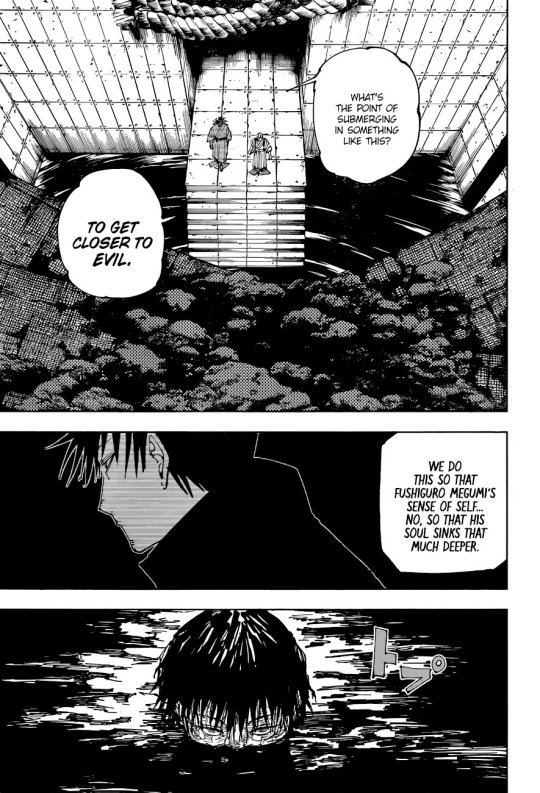

Jung once said "Until you make the Unconscious conscious, it will control your life and you will call it fate" which summarizes the concept of Fate within the framework of Jujutsu Kaisen.
I'm honestly not very sure if what I've said in this thread and the connections i made will turn out to be true but it was fun to write and share this and i intend to continue this theory. Yeah...there's even more that i want to add later on. Thanks for reading.
18 notes
·
View notes
Text
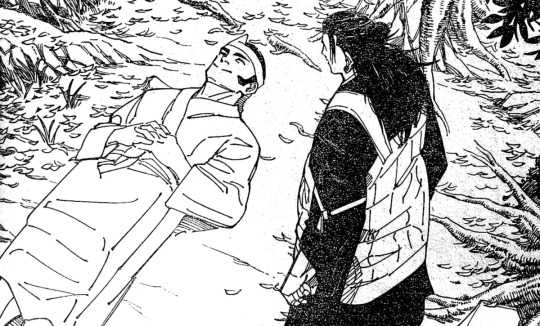
The Death of Kenjaku
So I was planning to write this meta the week that Kenjaku died, but decided to delay until we got full confirmation of his death. Something I didn't believe in even after Kenjaku passed the merger onto Sukuna. However, watching this video about death in Jujutsu Kaisen inspired me to finish this post. Not because I disagree with anything the YouTuber is saying, but because they can speculate on the meaning of so many deaths in Jujutsu Kaisen but can't find the meaning in Kenjaku's sudden death.
This has led me to speculate why Gege made the choice to kill Kenjaku in the way that he did. What meaning is there in Kenjaku's abrupt and unsatisfying death?
Who is Kenjaku?
The first step in understanding Kenjaku's death is of course understanding how he lived. We actually know incredibly little about Kenjaku's character by design. Despite the fact he's literally in Geto's body, he's not meant to have sympathetic or human motivations to his actions (though hold onto that "human motivation" in your head for a moment). No flashback sequence shows the audience why this guy is the way he is, no single event seems to have driven him to do what he did.
This is what we know about Kenjaku in brief. He is a sorcerer who is over a thousand years old who was around in Sukuna's day. He once had a friendship with Tengen, but found her original self boring and unambitious. He also contrasts heavily with Tengen, who lives outside of humanity, because he has lived among humanity for 1,000 years. One of those lifetimes was Noritoshi Kamo who violated a woman and conducted heinous experiments. He produced ten children in his one thousand years, the nine death painting siblings and Yuji Itadori. He considers the first children boring, because human and curse hybrids turned out too normal.
He also partially blames himself for how boring they are, because he can't create anything that will exceed his expectations, the only thing that can exceed his expectations is born in chaos. He spent a thousand years organizing the culling games, and wants to use the games to create a merger, because he thinks creating a merger between Tengen and Humanity will create something entirely new and interesting. He also believes the way towards the future lies in further optimizing cursed energy, not in breaking away from it the way Yuki Tsukumo tried to do and Maki has.
The only people whose word we have on Kenjaku's motivations are Kenjaku himself, and Tengen's word and Tengen themselves who claims to not know what goes on in the human heart.

From all of the above Kenjaku seems to be a shallow character who's motivations can be summed up as "because I can" and "I want to see what happens." This shallowness is intentional however, as Gege who once praised the minimalist storytelling of Nasu and Evangelion likes to pick and choose what crumbs of backstory he gives out for his characters. We've never gotten any exposition on the Gojo clan, but we have an entire chapter about Takaba's failed career as a stand-up comic. This isn't a judgement of good or bad writing, this is just how Gege writes as minimalist as possible. This is in line with how Gege writes the ancient sorcerers as well, they are all much more shallow driven by instinct or Freudian Id (I desire) rather than the higher reasoning of modern-day sorcerers. Takaba uses comedy as a means of communication and bridging the gaps between people, Higuruma's backstory is the critique of the modern day justice system.
Ishigori apparently lived a satisfying life where he was succesful and had good women, but that wasn't enough so he wants to get into a fight with Yuta to satisfy his hunger and feel like he's eaten desert.
It sounds shallow when I summarize it in text, but in the context of the fight with Yuta, it's a challenge for Yuta who for the most part only cares about his loved ones and sees the world through his love goggles to be more selfish and fight for his own desires. It's also reflective of a more basic and instinctual kind of thinking, as opposed to the higher reasoning and logic that modern-day sorcerers apply.
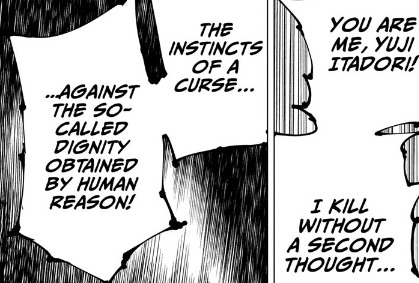
I'm keeping most of this first part to text for this reason, like go back and read the fight with Ishigori and Yuta. If I summarize Ishigori's character reasoning out of context it sounds stupid, but read the fight and it works because it's ID (I Desire) vs. Yuta's superego in not only having to collect points to help rescue Tsumiki, find a way to protect all the innocent people in the Culling Games, and also collect enough points to take on Kenjaku himself so Gojo won't have to. Meanwhile Ishigori's just fighting to get some of that sweet desert, the shallow works in contrast to the more layered motivations of our heroes.
Kenjaku is a shallow archetype fighting to satisfy his baser impulses (in his case curiosity) in comparison to the main characters who are fighting for more complicated reasons and often people besides themselves.
The question then becomes what archetype is Kenjaku. In that case answering who Kenjaku is is quite simple.
Kenjaku is a clown.
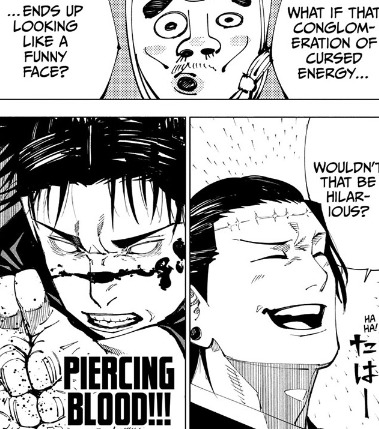
It might be more accurate to say that Kenjaku embodies what's commonly known as the "trickster archetype" but I'mma go with clown.
The most obvious example of a clown villain is what most consider the joker to be, that is a silly little clown man who challenges the straight faced and grim batman and sews chaos where Batman attempts to establish law and order in Gotham and make the city into a better place.
From the book Batman and Psychology:
More than any other villains, the Joker and Two-face reflect Batman himself as funhouse distortions, converses of who and what he is. The laughing, jesting, brightly colored Joker contrasts with grim, dark Batman. The Joker is the Joker. No alter ego. The film's opening bank robbery shows him wearing a clown mask over clown makeup, Under the surface there's only more Joker. He gives no history except inconsistent lies. When he finally considers the impact of his demand Batman unmask, he retracts the threat and demands that Batman's identity remain undisclosed. He wants a batman who has no other self, a Dark Knight whose only deeper layer is further darkness.
Is there a better descriptor for Kenjaku then these words?
Kenjaku is Kenjaku. No alter ego. A clown mask over clown makeup., Under the surface there's only more Kenjaku.
In other words, what you see is what you get.
Kenjaku even mirrors Joker's opinion of Batman, he thinks people should be more like him, not the other way around. He's not the outlier, he's being true to humanity's basic impulses of curiousity and discovery.


A more apt comparison as a clown though would probably be Loki, one of the most classic examples of clowning in the shared mythology of humanity. The character who challenges the common wisdom of gods like Odin who suspended themselves from the world tree for eleven days in order to gain wisdom. Loki, who through his trickery manages to bring about the events of Ragnarok for no deeper reason than because he can. Everyone swore not to harm Balder and Loki goes to find something that can harm him because BET.
Mythological Loki doesn't need a deeper motivation because what he represents in the mythology is someone who challenges authority and brings about a change, because in Norse Mythology nothing lasts forever and no era is permanent. Jujutsu Kaisen is also a story about how things should not in fact stay the same and tradition is bad sometimes.

When Kenjaku finds Tengen's true body he's curled up in a tree root in the fetal position, and he killed what is basically the all-knowing, all-seeing supposedly immortal sorcerer that maintains the status quo of japan, it's not exactly subtle.
Kenjaku is a clown, and clown's gotta clown. We don't need any more explanation that, it's more about what he does for the story. However, what he represents, the deep intellectual curiosity, and also a drive to disrupt the status quo in an attempt to see something more interesting can also be analyzed more deeply because they are human emotions that motivate us as well. The same way that Mahito is an inhuman monster, but he's created and motivated by the fear of other humans, something all of us have. '
Before moving onto his death though, I wanna hammer in how Kenjaku really is just motivated by these two things, a desire to see something interesting, and intellectual curiosity by comparing him to other characters.
The Clown in Fiction
I've already compared Kenjaku to Loki and the Joker, but when it comes to someone who wants to disrupt the entire order of the world simply because they're bored we've got to go to the original girlboss.

So there are plenty of villains who go "I'm evil because I'm bored" but they usually tend to be pretty shallow, either shallowly written for the lulz evil characters who just exist for shock value or just kinda dull. No one has ever done it as good as Junko Enoshima and no one ever will again.
For those who need context DanganRonpa is a death game series where the main villain basically has caused the apocalypse, wiped out most of humanity, and then induces survivors in a bunker to kill each other in a death game, where if someone commits a succesful murder they can escape the bunker, but if they're caught in a trial they're executed. Also, if they're not convicted in the trial everyone else is killed, motivating the jury to find and execute the guilty murderer.
Junko Enoshima the main villain and orchestrator of this death game ended the world because despair. She wants to inflict despair on everyone because despair. Because hope sucks and despair is where it's at.
It sounds shallow and it is and Kodaka has said in interview he wrote Junko to be a villain character with zero redeeming character traits, and no sympathetic backstory to describe why she is the way she is, but there is still something motivating her.
If you go a bit deeper into the lore and read Dangan Ronpa Zero, there is an entire book which explains the lengths which Junko goes to feel normal human emotions. The thing is much like Kenjaku Junko is too smart for her own good, everything is predictable and therefore everything bores her. Once in an attempt to live normally, she literally lobotomizes herself, makes it so that she can't remember anything and has continual amnesia constantly forgetting what just happened to her, because that's the only way she can live without knowing everything that's going to happen and constantly predicting everyone's actions.
Junko has whatever her universe's version of the six-eyes is, but instead of lording it over other people like Gojo and basking in her superiority she wants to feel normal, and connected to the world. If she can't have that she tries to make the world as unpredictable place as possible so she can experience it the same way that everyone else does.
Hope is harmony. A just heart, moving toward the light. That is all. Despair is hope's polar opposite. It is messy and confusing. It swallows up love, hatred, and everything else. Because not knowing where you will end up is despair. Despair is even what you cannot predict. Only despair's unpredictability can save you from a boring future.
I'm still not describing it properly because I don't want to go into a Danganronpa essay in this post about Jujutsu Kaisen, but one example I always use is two characters from American Dragon Jake Long. They're a pair of twins who see the future, one always sees happy things, and one always sees sad things. The one who has happy visions is a goth who's very depressed and the one who sees disaster is an incredibly peppy girl.
Jake is so confused as to why the twin who always sees good visions is so depressed, and she basically tells him to imagine having every good thing, every small little surprise, every pleasure taken out of life.
Kara: When you only see good things, nothing's special anymore. All the pleasant surprises are taken out of life.
Sara: But, when you only see bad stuff, even the smallest bit of good news makes you happy!
All of this to say what Junko feels isn't just boredom, or a desire to commit evil for evil's sake, but also a full on existential crisis where she's simply too smart so she doesn't feel any connection to other people or the world around her. In order to feel that connection, that connection that everyone else has, to feel like she is actually a participant in her life not an observer she's willing to go to extremes to make the world a more interesting place, to therefore make her own life feel satisfying.
Kenjaku vs. The World (Kenjaku Pilgrim's sad little life)
To connect all this back to Kenjaku imagine the profound existential despair of a person who's lived for a thousand years, and felt bored all that time. Sukuna is at least a hedonist, he gets his fun by getting into fights, humans might be bugs to him but they're tasty bugs.
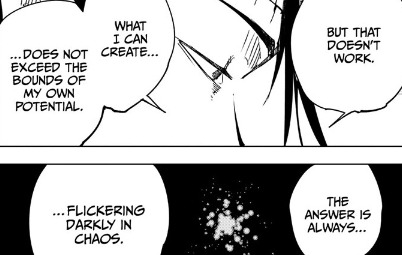
Kenjaku goes to similiar motivations and has similiar extremes, he's uninvested in the world around him, he's lived a thousand years but has no attachment to the world, to life, to the people around him. I said that Junko wants to be a participant in life not an all seeing observer and that was purposeful language because to bring back an old post. I rambled on this post about Gojo that part of Gojo's problem is that he only experiences observer-to-object relationships or I to it.
Ich and Du, translated as I and Thou is a book by philosopher Martin Buber. His two main porositions is that we may address existence in two ways:
The attitude of the “I” towards “it” towards an object that is separate in itself, which we either use or experience.
The attitude of “I” towards “Thou” in a relationship in which the other is not separated by discrete bounds.
In Buber's terms, those who only experience the first type of relationships are only observing the world around them not relating to them. Kenjaku doesn't relate to other human beings because they are objects, he only experiences subject -> object relationships and never subject -> subject.
Buber also goes on to theorize that meaning in our lives comes from subject -> subject relationships we form with other people.
Kenjaku jokingly says that to be his friend you have to never bore him and be his equal, but there's no one considers his equal because he's the subject and everyone else are just objects.

He regrets he can't sit down and talk theories with Tsukumo Yuki because she's one of the few people who think like him.

Kenjaku is a paradox of an incredibly brilliant man who is also shallow as a puddle that you can stand in and not get your socks wet. However, he tragically can't really form a more complex identity because our identities are formed by our relationships to other people and Kenjaku doesn't relate to anybody.
That's basically the theme of the whole Choso and Kenjaku fight, Choso is a weird aborted fetus of a curse who still has a strong identity and is able to feel unconditional love for Yuji because of the connection of family and the ideas of brotherhood that binds the two. Kenjaku is a bad father who abandoned Choso because they were "boring" but also never really gave them a chance to grow up or be interesting, he just dismissed them offhand and moved on to the next weird science project.
However, his reason for dismissing Choso isn't Choso's fault but rather a case of Psychological projection. It's not Choso who is boring, but rather Kenjaku himself, he said so earlier.
"What I can create, does not exceed the bounds of my own potential. The answer is always flickering darkly in chaos."
Kenjaku cannot look within to find anything satisfying abput his life because there's nothing inside of him. He doesn't have a fully formed identiy he's just ID, and because he tramples all over other people to form his desires he also cannot ever form a full ego. Just like Sukuna and most of the ancient sorcerers he's a paradox of being all ego, and yet having an underdeveloped ego with shallow motivators.
Kenjaku cannot look within because he's a boring person, and he cannot look for other people to find worth in his life because they're just objects, so instead he looks into the void, he tries to change the world around him by spreading more chaos hoping that it will make something unpredictable happen in front of his eyes - and that will give him the meaning and investment in his life he's deprived himself of because he refuses to form relationships with other people.
It's the Gojo problem. It's the Kashimo problem. It's not the Sukuna problem, because Sukuna admits he doesn't care about and rejects things like love and meaning.
If Kenjaku makes the world around him a more interesting place, he will be able to live in it. It's the same as Gojo trying to raise people up to his level by creating stronger students.
So after going to great length to demonstrate how powerful and all-consuming Kenjaku's boredom is, and how cut off he is from his own humanity, here's the part where I sort of defend his death.
Wouldn't it be funny if the joke character killed the main villain?
Let's be honest it was Takaba's kill here, Yuta just camped and killstole. I think part of the problem with people not understanding the meaning behind Kenjaku's sudden and unexpected death is attributing the death to Yuta cutting his head off out of nowhere, and not Takaba's thematic victory over Kenjaku.
Takaba represents a blindspot for Kenjaku which is why the main characters use him as a weapon against him, and he also calls out in a fashion Kenjaku's hypocrisy. First and foremost, Kenjaku presents himself as an agent of change, but he actually has no interest in many of the modern sorcerers and holds a bias towards the heian era as the peak of sorcery. He even says that he's going to bring back the Heian Golden Age to Sukuna at the end of Shibuya arc.
Because that's what Chaos is Kenjaku, things being the same as they were 1,000 years ago. Kenjaku is an agent of change and chaos and somehow his definition of change is... resetting things back to the past because the sorcerers of the past were so much better than today.

Kenjaku goes out of his way to awaken hundreds of modern day sorcerers, and then dismisses literally off of them except for Hiromi because they don't have enough potential for him compared to ancient sorcerers. He essentially did the same with the Death Painting Bros, he went through all of the trouble to create them, then dismissed them as not having enough potential BEFORE THEY EVEN GOT THE CHANCE TO GROW UP.
Kenjaku has a habit of just going BORED NOW and leaving before he even gives things the time to impress him. He does the same with the Culling Game, he set up the death game to push sorcerers to fight each other and bring out their powers, but he never actually intended to watch the sorcerers evolve. He just wanted to slaughter everyone inside to start the merger.
He goes through a lot of potential to set up these situations and then abandons them before they have the chance to even evolve, because they do not have enough "potential" in his opinion, but like his opinion is often shown to be wrong. Takaba represents that blindspot because he was one of the modern sorcerers that Kenjaku underestimated and dismissed offhand as boring without giving him a chance to shine.
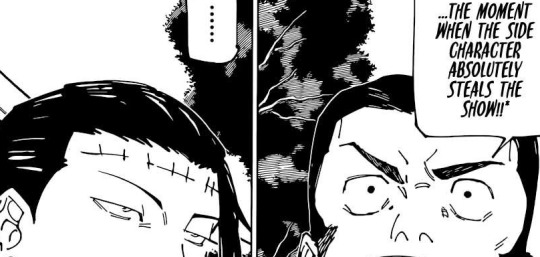
That is the joke that Takaba introduces himself with "Wouldn't it be funny if a random comic relief side character suddenly defeated the big bad?"
He's immediately pointing out a blindspot, because Kenjaku automatically believes himself to be an important character, he underestimates Takaba because he's a side character, one of the people Kenjaku has dismissed as boring and uninteresting (before they even had a chance to evolve into something else). Like that's the other thing Kenjaku wants things to evolve but he doesn't... let them. He abandoned Choso and the rest before they even grew up, they were literally fetuses and he threw them away. Kenjaku is the protagonist of reality, and Takaba is a side character, and therefore Takaba couldn't possibly harm him because Kenjaku and his boundless curiosity are the center of the world.
It's not just about subverting the audience's expectations to have the main villain die in such an anti-climactic way before the final act even starts, but it's pointing out how narrow Kenjaku's viewpoints really were all along. He wants everything to be surprised but he never lets anything surprise him, because either he gets bored right away, or he looks down on others before giving them the chance to evolve, or the third thing he just straight up has to control everything. He can't let the culling game evolve naturally he's going to slaughter all the players by hand so he can move onto the next part.
It's the contradiction between a schemer who needs to control everything and everyone to bring about his intended result and everything needs to be a part of his big plans, to someone who wants to be surprised by others and have things go off the rails. You can't have both of these things at once, Kenjaku cannot have things surprise him if he rigs everything to go his way with his overly elaborate schemes and his tight-fisted control of everyone in the story.
Like, in comparison to Kenjaku the joker just blows things up and sprays people with laughing gas. They're both playing the same game but the joker is having fun and Kenjaku isn't.
Kenjaku wants an unexpected future, but he doesn't care about any of the modern sorcerers and has a bias towards the heiean era that he considers the height and wants to reset things to bring back the heian era. He wants to be surprised but won't give up control.
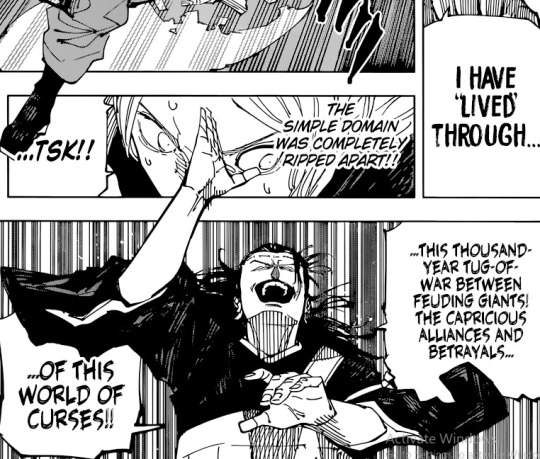
Kenjaku's boast is that unlike Tengen he's spent a thousand years living on the ground instead of lording up on them from above like some deity, but is that true? Has Kenjaku lived? Has he engaged with the world? Formed relationships with people? Or does he just sit in the corner rubbing his hands together menacingly and scheming his schemes.
Takaba unironically gives Kenjaku what he wants, something he's never seen before in a thousand years, and it's from a place Kenjaku never expected. Some random guy, who he dismissed as one of the boring modern sorcerers with no potential like Higuruma.
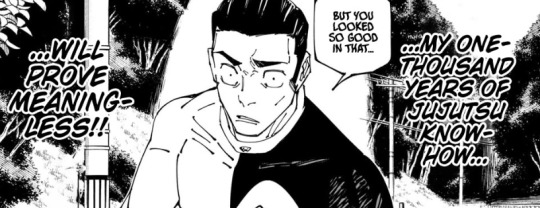
Takaba not only exists in Kenjaku's blindspot, he almost immediately points out Kenjaku's second hypocrisy. If he's willing to resort to mass murder just to feel entertained, then if he found something else to entertain him there'd be no reason to get violent and scheme his schemes.

In other words Kenjaku hasn't really gone looking for other places to try to find what makes life worth living, or at least enertaining, he hasn't really tried any alternatives to finding joy in life because Jujutsu is all he cares about. Takaba says that if he found something else even more entertaining than the merger there'd be no need to go through with the merger, and he turns out to be right. Kenjaku could have found meaning and entertainment with the world someplace else, he was just too narrow minded and never looked anywhere else.
As I said from the beginning Kenjaku's existential crisis comes from his inability to relate to other people and viewing them all as objects, but in Kenjaku's mind of course he can't relate to others they're too boring, so therefore it's the world's fault, and the fault of others and not himself.
However, right away one of those boring people starts relating to Kenjaku.

I joked about how we know nothing about the Gojo clan but Takaba gets an entire backstory chapter about his failed comedy career, but this chapter is plot important because jokes are the way that Takaba relates to and forms relationships with other people. Takaba makes jokes to relate to others but has a fallout with a comedy partner and has never been able to form a lasting relationship with a comedic partner because comedy doesn't mean the same to them as it does to him - because to Takaba comedy is about forming relationships with people. Which is why he thinks he's failed if he's failed to make everyone in the audience laugh because he wants to make comedy that will make other people relate to him and understand him.
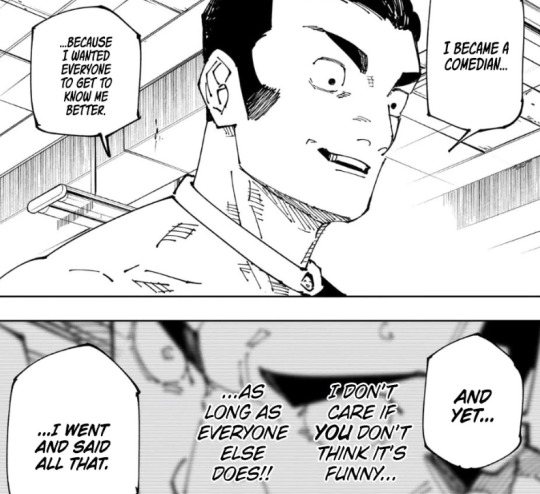
However, he almost gives up on comedy because he's afraid that he might fail on that endeavor. He gives up on striving to make everybody in the audience laugh, because of self-affirmation and a desire to protect himself. He didn't want to fail so he started distancing himself from the audience under the excuse "Well, I can't make everyone laugh so it's okay if not everyone understands me."

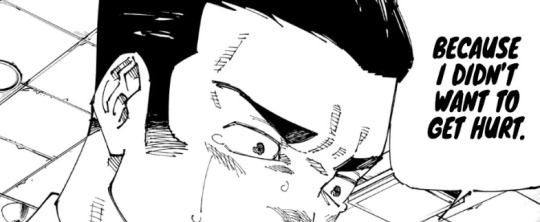
Takaba at some point gave up on trying to use comedy as a means of understanding and relating to others, because of his fear of failure and at that point he nearly lost - but he rallies himself by saying that he won't give up on making someone like Kenjaku laugh. If his comedy is about connecting to others, about understanding others and having others understand him then he can't just give up on Kenjaku and say it's Kenjaku's fault that Kenjaku can't relate to his sense of humor. He's got to try even harder to make Kenjaku laugh.

This is also pretty much the opposite of Kenjaku's point of view. For Kenjaku it's everyone else's fault for being so boring that's why he can't relate to them. Wheras, Takaba takes personal responsibility, he wasn't funny enough, he has to try harder, he's the one who's going to make Kenjaku laugh by improving himself. Takaba looks inward, and Kenjaku looks outwards because there's nothing inside Kenjaku.
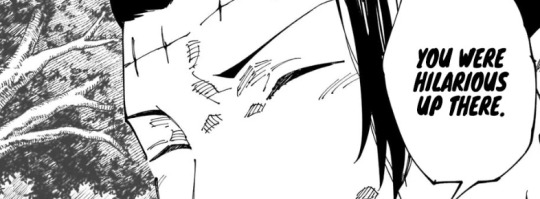
This is a parallel to this.
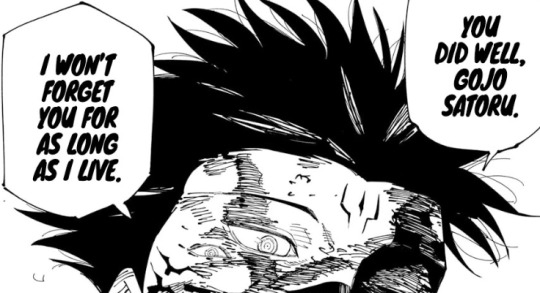
The difference however, is that Sukuna did not betray his ideology. Sukuna lives for the kicks that battle provides him and wants to face strong opponents so he can eventually devoured them and be momentarily entertained.
Like Sukuna is not bored the way Kenjaku is. The world is his playground. He may refer to living as just killing time until you die, but he also says that there's an infinite variety of humans to entertain yourself with. The world is Sukuna's toybox and he's satisfied with just that. In fact he doesn't even care about the merger, until his frustration with Yuji makes him think a little deeper about himself.

Kenjaku is not the Sukuna in this scene, he's the Gojo. He believed he was above others, only to be reminded suddenly that he was just the same as everyone else and brought back down to humanity. I mean, they even die off panel the same anticlimactic way. Gojo's infinity meant nothing in the face of one surprise attack a world-cleaving slash Gojo didn't see coming. All of Kenjaku's backup plans meant nothing in the face of Yuta camping and kill-stealing.


Kenjaku didn't lose because Yuta's plan of camping and killstealing was simply too brilliant for him to prepare for however, we're given the exact reason kenjaku lost - because he was having too much fun with Takaba.
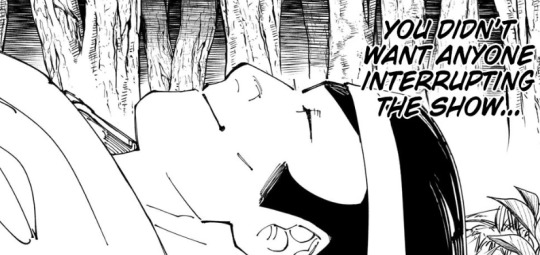
Which meant what Takaba said earlier was true, if Kenjaku found something funnier, something other than the merger that could make him laugh there'd be no need to go through with the merger to begin with.
Kenjaku loses because all along he could have related to people, formed meaningful relationships with others, looked for meaning in life outside of Jujutsu but just chose not to. Which is also a parallel to this.
Sukuna says that Kashimo and Gojo both lost because they were greedy. They already received love in a way, they had the love of everyone who regarded them as the strongest, they had people who earnestly wanted to challenge them and respected them - which Sukuna sees as a form of love, and yet they still wanted more.

They were the ones who put themselves up on that pedestal and decided to stand above all of humanity, they don't get to whine about being lonely on top of that.
To add my interpretation to Sukuna's speech, what he's outlining is a general conflict in Jujutsu Kaisen, you can choose to be all ego to put personal development above everything else but it comes at the cost of not being able to form relationships. Maki's as powerful as Toji now, but the sister she always wanted to protect is dead and basically committed suicide. Meanwhile Noritoshi Kamo didn't participate in the final battle, but he reconnected with his mother and half-brother.
There are plenty of characters who die and suffer in jujutsu kaisen because they chose to value other people above themselves, because Jujutsu Kaisen rewards selfishness and punishes selflessness / having an underdeveloped sense of self.
I'll pick Mechamaru as my biggest example, he lived to protect Miwa, and not only does he die an unsatisfying death, he also breaks her heart.
However, at least Mechamaru experienced love. His desire to protect Miwa is granted, because Miwa is also out of the final conflict. Mechamaru is one of the most miserable characters in the manga, and yet he experienced love in his life for someone else that made his brief life meaningful. The characters who choose love, and other people over strength tend to get stepped on, but they at least had that love in their life to begin with.
It's a having your cake and eating it too situation. Kashimo chose strength over love, and he got to be so strong he was unbeatable and lived to old age, but not only is he unfulfilled but he whines about being unable to relate to the people around him - you're the one who chose to step on everyone like bugs.
Characters in Jujutsu Kaisen don't just experience death when they try to be selfless however, like yeah there's a disproportionate amont of selfless minor characters who die, but like Yuji is the most selfless character in the manga and he's continually punished for it and yet he's the one referred to as a person with an unbreakable will.

Rather instead of Jujutsu Kiasen preferring the selfish side on the scale of selfishness / selflessness, the kind of messy, deaths that get handed out to people like Mechamaru happen when you betray the ideals you were living for. Whether they were selfish or selfless.

It goes back to Toji's internal monologue. You lose when you lose sight of yourself - like there's some deaths that don't fit the mould but for the most part, Gojo, Kashimo, Toji's and then Kenjaku's deaths all follow this pattern. By coincidence they also all take place offscreen for the most part (I suppose we see Yuta cut off Kenjaku's head but it's quick and unsatisfying compared to all the rest).
Kenjaku died because he betrayed what he was living for and he temporarily lost sight of himself. As I said Kenjaku's airtight principles were that everyone was boring and people weren't worth relating too so the only way to find enertainment in life is to cause chaos - but he found himself relating to some nobody he wrote off as a minor character Takaba and having fun with him. Which meant the belief he was false, he could have tried relating to other people all along he just didn't.
He warped his sense of self to reaffirm his identity. Takaba almost did that too, he tried to blame other people for not finding him funny to protect himself, but he moved past that and redoubled his efforts to make Kenjaku laugh.
There's also the added layer of irony that Kenjaku's sudden death brings about, the person who spent a thousand years trying to make the merger happen doesn't get to see it.
However, here's my assertion on why Kenjaku's death before the merger always had to happen.
Because, even if Kenjaku had seen the merger he still would have been bored.
Literally everything about Kenjaku's character and previous actions shows that even if he made his big scheme come true, he would have gone "meh" and moved onto the next scheme because that's how he always reacts.
He got bored of the death painting siblings, he presumably got bored of Yuji, he got bored of all the ancient sorcerers and new sorcerers he made for the culling game, he worked with the disaster curses and got bored of them and dismissed them as inferior primitive curses, he goes out of the way to engineer these chaotic situations and then never feels any satisfaction from them so why would the Merger be any different?
Not only did Kenjaku die before he saw the merger, he was basically doomed to never see the merger, because it would not have fixed whatever is wrong inside of him.
Because it's not the world that's boring, it's Kenjaku himself.
He gets a brief glimpse of what he could have done in life, that he could have tried to forge connections with the people around him and related to them on a personal level - and then he dies the way he lived, in a kind of boring and unsatisfying way.
It's the narrative punishing him in a way, the same way it punished Gojo, and Kashimo, by not letting him see the big explosion after he went to all the trouble rigging the bombs. It's punishing him for the same reason too - by deviating from his true self and showing what he thought were his reasons were shallow all along. Gojo could have always related to people he just chose to stand on his pedestal alone, and Kenjaku could have always found the world to be more enertaining he was the one dismissing other people as boring without giving them a chance to grow.
Takaba confronted his beliefs and then stayed true to his ideology of making everyone, 100% of the people in the crowd laugh. Kenjaku didn't confront his beliefs, he strayed from them because he didn't have the strength of character to evaluate himself the way Takaba did.
Hence, he's finished off by one of those boring people who used their power in a way he never expected. The main villain is defeated by the comic relief character and it's hilarious.
#jjk meta#kenjaku#fumihiko takaba#ryomen sukuna#jujutsu kaisen#jujutsu kaisen theory#jujutsu kaisen analysis#jjk spoiler#jujutsu kaisne spoiler#big spoiler actually
219 notes
·
View notes
Text
JJK Theories
I honestly was so devastated (if that's how you spell it) when gojo and nanamin died (lalalalaalalal i don't hear it).
I don't know how it will be in the future.
But this is how I want it to be.
yuji (my baby) practices hard and becomes brave. Like so powerful. More than anyone else. He finally overpowers Sukuna. He wins against sukuna. And when that happens... every single sorcerer, who would have been alive by now... would come back. Like they reverse unaliveness. Like all of them. Be it Gojo ( my boyfriend ), nanamin (my husband), megumi ( my baby ), nobara, geto. Like every single one of them. And once Sukuna, king of curses die, every single curse dies with him. No king no subjects. And none of them would have to go through this shit again.
Like imagine....
I hope that, if not this, something else, but better happens. Cuz I can't handle it now. I want my babies back. (˘・_・˘)
If you guys have any theories or other imaginations. PLease tell me.
#jjk#jjk theory#jujutsu kaisen#jujutsu kaisen theory#jjk goko#jujutsu gojo#jjk gojo satoru#jujutsu gojo satoru#jjk imagines#jjk spoilers#jjk gojo#yuji itadori#gojo satoru#jujutsu geto#geto suguru#jjk geto#suguru#nanami kento#jjk nanami#jujutsu nanami#megumi fushiguro#jjk megumi#jujutsu megumi#jujutsu kaisen megumi#yuji#itadori#nobara#nanami#geto#gojo
24 notes
·
View notes
Text
yuji is sukunas last finger
www . reddit . com/r/Jujutsushi/comments/153crf4/yuji_is_sukunas_last_finger/
I admit this is more a shot in the dark than an actual theory, but what we know so far can point towards this conclusion: Yuji came to be from Sukuna's last finger.
TL;DR: Kenjaku had all the 20 fingers and kept the last one to use it when creating Yuji. His abnormalities and Sukuna and Kenjaku's attitude towards him seem to hint this theory holds some ground.

kenjaku talking about yuji
Gojo doesn't have the finger
The last finger is currently missing, Sukuna believes Gojo has it, but it's unlikely. Gojo wouldn't leave it around, he would keep it on himself. But if that were the case I don't think it would have been sealed with him, as the prison realm can host only one being, and a sliver of Sukuna's soul is likely to be considered another person. So the finger would've been found by Kenjaku the instant Gojo was sealed.
The finger is not lost somewhere
Most the fingers were either in possession of either Jujutsu High, Uraume or Jogo, while the few laying around were quickly found and retrieved. It's not impossible, but it's really unlikely that the last finger is simply lost somewhere, even from a storywriting perspective it doesn't make much sense.
Kenjaku had all the fingers at some point
We know for a fact (Angel stated it) that Kenjaku helped Sukuna split his soul in the 20 fingers originally, and from then Sukuna learnt to do it on his own. Many theorize that Kenjaku himself was the one who dropped the fingers around hoping Yuji would come in contact with one, and this theory is supported further by the locations of the fingers being places Yuji could have been been in: a Juvenile detention centre, a school, and so on.
To sum up, it's definetely not a stretch to assume Kenjaku was in possession of all the fingers for some time.
Kenjaku kept one finger and used it to create Yuji
Now we get to the juicy part of this theory: Kenjaku kept a finger and used it for his experiments.Since the finger is neither in the hands of one of the characters, nor simply laying around, where could it be? It was used by Kenjaku when creating Yuji, to make the perfect vessel for Sukuna.
We all know that Kenjaku meddled with Yuji while he/she was pregnant, and that Yuji's abnormal physical attributes are a direct result of that. I think that Sukuna's last finger was involved in the whole process, and although I don't know how or why Kenjaku did it, I believe there are many hints in the manga that support this theory, that Yuji was created from Sukuna's finger.
Firstly our mc is a perfect vessel for Sukuna, capable even of suppressing his soul, the same soul Mahito was astonished by. An impressive feat for anyone, not to be dismissed easily. Sukuna feared Megumi might be able to hold him too, but we don't know if he would have managed to.
Secondly, while talking to Choso, Kenjaku referred to Yuji as "it", or "that thing" depending on the translation, as if he was an object, while he never called Choso and his brothers that, it's a term he used specifically for only one of his creations.On top of that, Sukuna himself admitted that Yuji "is from that era" during their latest fight. Sukuna doesn't know Yuji was made from the last finger, and at that point he hadn't met Kenjaku yet after reincarnating, but he knew Kenjaku was involved in Yuji's creation and knew Yuji is from another era. Kenjaku probably kept and keeps him in the dark about his last finger, as Sukuna wouldn't really be happy about it.
Additionally, as we know Sukuna's fingers are indestructible and Yuji is incredibly resilient. If Yuji was made from a finger, its toughness could have passed and diluted into him.
Lastly, Sukuna and Yuji look somewhat similar, to the point that the king of curses looked way more natural in Yuji's body rather than in Megumi's.
a video by quirkless shinobi who had the same idea as op:
undefined
youtube
youtube comments
There is also a nice thing to speculate upon, which is the Star Vessel. Assuming Sukuna could undergo a similar process, it could be that Yuji was made to be his vessel with a finger. Which would explains why Sukuna hates him so much, as Yuji would quite literally be him but younger, naïve and still good hearted. Back in the Hidden Treasure arc it is said that if Tengen doesn't merge he could lose his identity and maybe even turn against humans. It could be that Sukuna is exactly that, a failed merger. It's also interesting to point out that Tengen, Sukuna and Kenjaku all three cheated death and all three need vessels to do so, with the difference between them being only the specifics. Sukuna's method however is much more... Passive. Tengen and Kenjaku managed to keep hoping vessels no problem, but Sukuna was left waiting for a proper vessel to show up and finding good vessels is hard. Almost as if it an incomplete technique. And if that is the case, it would also be interesting thinking what happens when they do properly merge. Not as two souls in the same body, but if they truly fuse, how would they affect each other. Of course, this is a lot of speculation.Show lessI think that Yuji could be the manifestation of Sakuna's "soul". This ties into the conversation about what comes first from Mahito. Saluna could've been a human who discarded his soul, in a way, and essentially became a cursed spirit.I'd like to add to remember that Yuji means translated to English as much as Second son. It's a name mostly given to the second son of a family
At 2:11 I take it back because in the opening of chapter 213 we DO see Sukuna in his innate domain after he took over Megumi and he looks exactly the same as he did in Yuji. His dialogue also talks about being in "that brat's body" and taking over Megumi's in the past tense. I think the Sukuna we see in Yuji is just Sukuna and the theory I'm leaning towards the most currently is Yuji being Sukuna's finger.
I'm just going to put this here instead of answering everyone who brings it up, yes I am aware of Gege's comments on Sukuna looking like Yuji because he is inside of him. However like all author comments surrounding major plot events they should be taken with a grain of salt. Authors lie about major plot reveals to hide the truth from their readers in ancillary interviews to hide the truth in nearly all mediums of storytelling. Just ask yourself what you would do if confronted with a question that the actual answer spoils a major event in your story. In this case we see Sukuna after he takes over megumi so until we see evidence in the STORY to the contrary I wouldn't write anything off. Regardless, they look similar even if we completely ignore the innate domain which is a relatively minor detail.
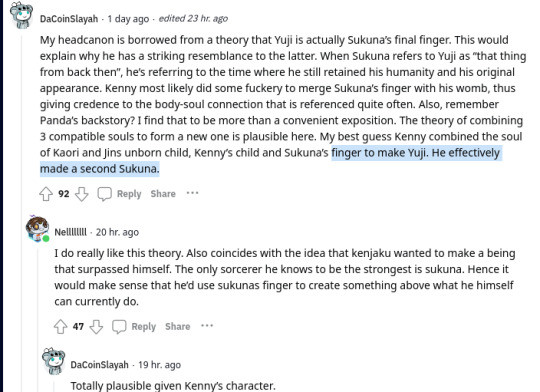
The cursed wombs like choso were made by a curse spirit a human woman and kamos blood being mixed in yuji would be made with.sukuna a and a human man and woman
#jjk#jjk theory#yuji itadori#jjk meta#jjk spoilers#jujutsu kaisen theory#jujutsu kaisen#jjk kenjaku#jjk sukuna#ryomen sukuna#Youtube
45 notes
·
View notes
Text
Figuring out what you need is so hard...
Well, you know, his overcompensation for self-affirmation of his existence, through the destruction of ideals, is the peak of comedy, absurd of course, but his facial expressions are amusing. Literally from an attempt to come to the truth, to complete self-denial -
1 Within, something churns; a restlessness is felt for the first time. Dukkha (Suffering)
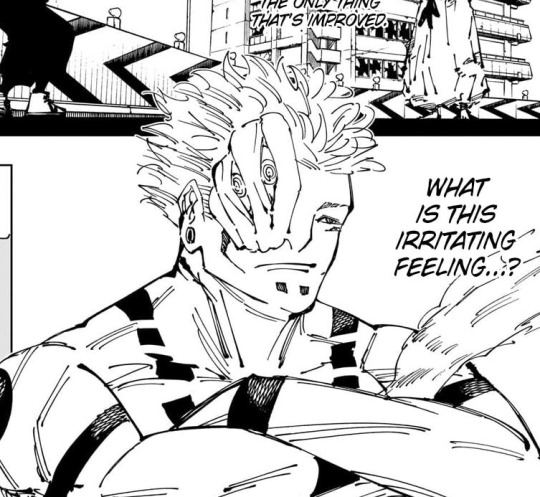
2 Hm, something's off here, man. It doesn't quite fit. Samvega (Spiritual Urgency):
So, we're just joking around, but the dude's muscles are tense from some unconscious stress , ya know? And a huge appetite.
Are these hints being thrown or is it just the Gege usual way of sketching him? Or am I completely losing it?
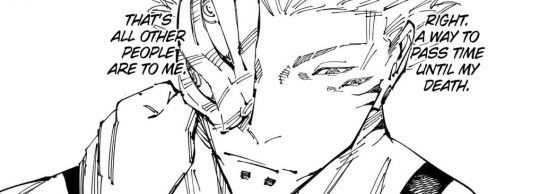
3 But, of course, all of this is due to some petty, sneaky trick through which I glimpsed another world. Viparyāsa (Misapprehension)
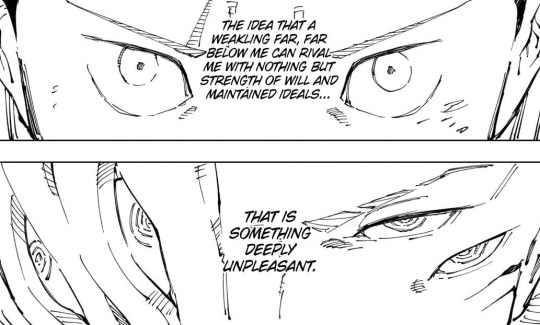
4 That's it, you're all screwed now. Dvesha (Aversion)
In Buddhist psychology, aversion (Dvesha) is a psychological reaction manifested through repulsion, resistance, and active dislike towards unpleasant objects. This state arises when contact with sensory objects occurs without self-analysis (asampajanna) (unconscious). and can lead to passion (raga), greed (lobha), or delusion (moha). In the case of aversion, derivative emotions such as anger (krodha), hostility (upanaha), malice (pradosha), envy (issa), and the intention to harm (vihimsa) may arise, all of which have aversion (dosa) as their underlying basis.
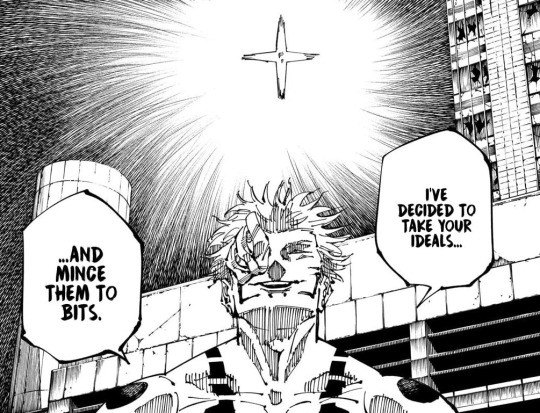
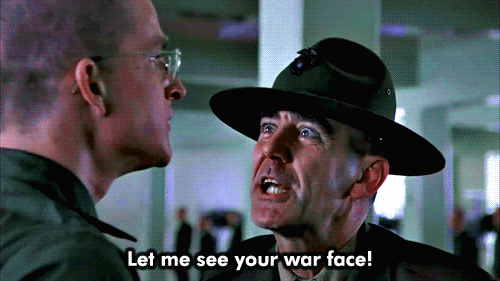
#jjk meta#ryomen sukuna#jujutsu kaisen#jujutsu kaisen theory#jujutsu kaisen analysis#jjk#jujutsu kaisne spoiler#yuji itadori#jjk manga#manga#anime#jjk spoiler#jjk analysis
37 notes
·
View notes
Text
I don't think Gojo will die. I think he will lose his eye and thus lose his Six Eyes and with that he won't be able to control Limitless as perfectly as he does now.
Because isn't his strength what defines him throughout the show? And if he loses his Six Eyes he won't be the Strongest™️ anymore.

I mean look at this part of the opening. With how much foreshadowing we had in the opening until now it wouldn't surprise me he would lose his eye.
For example this part:

This was foreshadowing the culling games and the dome/curtain and Kenjakus plans with Tengens curtains.
#Jjk#Jjk spoiler manga#Jjk manga#Jjk opening#Jjk gojo#Jjk theory#Jjk geto#Gojo satoru#Geto suguru#kenjaku#Jujutsu kaisen#jujutsu kaisen theory
57 notes
·
View notes